#yu-gi-oh gx
Text
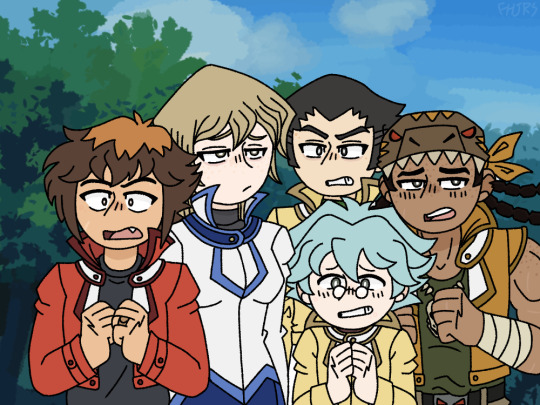
yaaay it's a gx redraw ^_^
#jack illustrates#yu-gi-oh gx#yugioh gx#yu gi oh#yugioh#judai yuki#jaden yuki#alexis rhodes#asuka tenjoin#bastion misawa#daichi misawa#syrus truesdale#sho marufuji#tyranno hassleberry#tyranno kenzan#screencap redraw#screenshot redraw#redraw#digital art#artists on tumblr
234 notes
·
View notes
Text

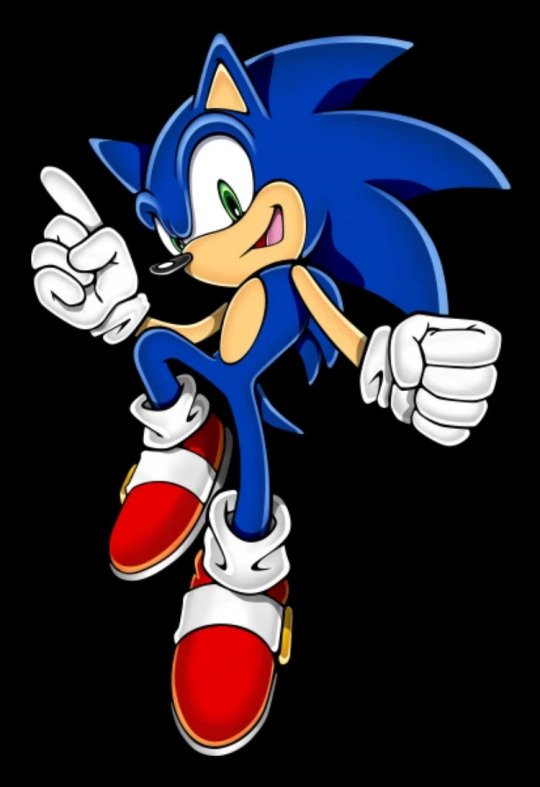
my canon event is realizing how incredibly similar jaden and sonic are in terms of their personalities and how they tackle their situations, to the point that you can almost view them as the same person
#please tell me that i'm not the only one who noticed this#sonic#sonic the hedgehog#yugioh#yugioh gx#yu-gi-oh#yu-gi-oh gx#ygo#ygo gx#jaden yuki#judai yuki
90 notes
·
View notes
Text
Do You Know This Anime?
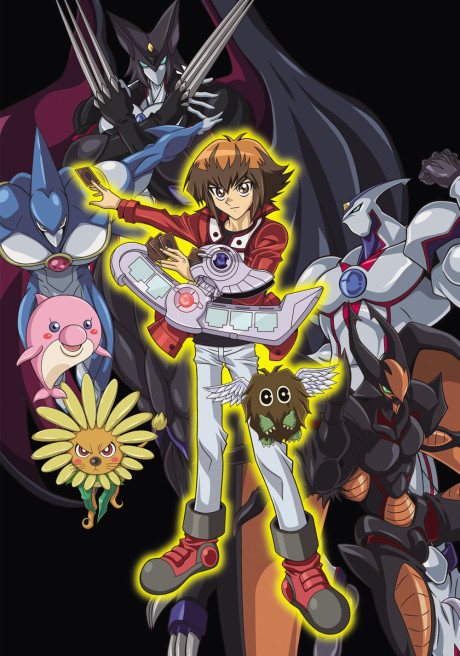
69 notes
·
View notes
Text
Judai and Yubel's Chemical Wedding
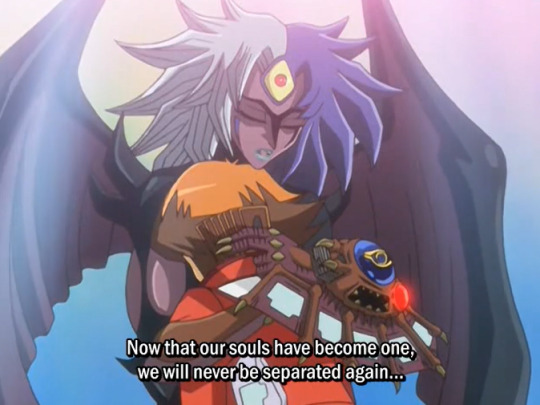
A chemical wedding is central to many alchemy stories.
A chemical wedding is a reconciliation of opposites, often with the most significant character relationship to the protagonist. A relationship which destroys and then remakes them in the better version of themselves.
Jung said that relatioships are chemical reaction. If you have a reaction you can never return to your previous state of being. That's ultimately the role of a chemical wedding in a story. A relationship which is central to a character's development, and changes both parties.
Yubel isn't just important for Judai's character development, they're literally his other half and their union of opposites completes them both in an alchemical sense. Keep on reading below the cut for a lesson in alchemy symbolism.
Peter Pan's Missing Shadow
So, the story goes somewhere in the middle of developing season two the writers recognizing that Judai, would never be able to handle a Marik level antagonist. He lacked maturity compared to the previous series protagonist Atem. The concept of Yubel emerged to make Judai grow, because as he was, he wasn't enough.
Judai fits the archetype of the hot-blooded shonen protagonist almost perfectly in the first two seasons, but even in two seasons where he changes very little as a character the hints are there.
Sho immediately puts Judai on a pedestal, and soon so does everyone else. Judai is praised for his pure heart over, and over. The standards for Judai are set so high you begin to wonder what if Judai wasn't the person everyone sees him as?
At this point is it even Judai that his friends are seeing?
What does that do to a person's identity when everyone around you is love with the idea of you. When you're not seen as a person with flaws.
Judai doesn't grow but how can he, when he's not really allowed to make mistakes. When he's expected to always be cheerful, and always bounce back without help or support.
Judai is pure of heart, but is anybody really pure? The light always casts a shadow.
Jung pioneered a lot of analytical psychology theory. Jung divided the psyche into four parts, the persona which is how we externally engage with the world our public face, the animus and anima masculinity and femininity, and finally the shadow.
Complementary to Jung’s idea of the persona, which is “what oneself as well as others thinks one is” [CW9 para 221], the “shadow is that hidden, repressed, for the most part inferior and guilt-laden personality [...] that is his shadow does not consist only of morally reprehensible tendencies, but also displays a number of good qualities, such as normal instincts, appropriate reactions, realistic insights, creative impulses etc “
The shadow isn't made up of bad qualities, just what we are afraid to show others because of judgement. Hidden as it may be, the shadow is a fundamental part of your personality.
Jung had a deep interest in the shadow – its form and content – and in the process of assimilating “the thing a person has no wish to be” [CW16, para 470]. He saw quite clearly that failure to recognize, acknowledge and deal with shadow elements is often the root of problems in relationships.
Is a friendship with someone real if you're afraid to show any of your flaws?
Juda's never allowed to make mistakes around his friends. He's under constant pressure to fight their battles, to fear he might lose them if he loses.
Ryo, a foil and rival Judai suffers a complete breakdown after losing just one duel. Before that he spelled it out for Judai in the graudation duel, the "perfection" everyone expected limited his growth, until he finally fell apart. If one loss makes Ryo fall then how much farther does Judai who's under more pressure have to fall?
Judai hides his shadow from everyone, but the shadow isn't just a part of you. The shadow is you. You are your shadow. Which is why recognizing the shadow is a critical part of growth - and alchemy. As Jung once said, "The gold is in the dark. And one does not become enlightened by imagining figures of light, but by making the darkness conscious.”
Judai's in unable to grow up, because like Peter Pan is missing his shadow. It needs to be retrieved and sewn back to his feet. Until then, he's stunted and missing an important part of himself.
Judai is missing something important without his shadow. I'm not pulling this from thin air, it's directly stated by the text repeatedly.
Here.
Kouji Satou: We have something that you lack.
Judai: That I lack?
Kouji Satou: Yes the darkness of the heart that slumbers deep within a duelist. The burden that a duelist bears in his heart. Judai, you have none of that.
Here.
Cobra: You are certainly a talented duelist. But you have one fatal flaw.
Judai: A fatal flaw?
Cobra: Yes, your duels are superficial. Someone who fights with nothing on his shoulders, cannot recover once he loses his enjoyment. What a duelist carries on his shoulders will become the power that supports him when he’s up against the wall!
Cobra: But you have nothing like that! Those who go through life without anything like that cannot possibly seize victory.
Cobra: But I know that nothing I say will resonate with you… because you have nothing to lose but the match.
Even, by Judai himself.
Judai: They’re all… They’re all gone. There really was something missing in me. But what is it? What was missing? What should a duelist burden themselves with?
I often worry people will misinterpret Judai's ending with Yubel is unhealthy because he's "caving to the demands of a stalker."
Yubel's not a stalker, they're not even a real person. Judai's a character in a story, experiencing an arc about learning to accept and grow path his worst flaws. How could that arc end with throwing away Yubel, who represents the ugliness Judai tries to hide?
Yubel is Judai's shadow, run away from him just like Peter Pan. Yubel's more than just a cast-off shadow though, Yubel is Judai. A good example of two separate characters coded as each other's shadows in other literature is Katherine and Heathcliff, two characters designed specifically to be two halves of a whole. Katherine once said, "I am Heathcliff", or to be specific she said:
My great miseries in this world have been Heathcliff’s miseries, and I watched and felt each from the beginning: my great thought in living is himself. If all else perished, and he remained, I should still continue to be; and if all else remained, and he were annihilated, the universe would turn to a mighty strange: I should not seem a part of it [...] Nelly, I am Heathcliff!
Katherine - Wuthering Heights
So these are two different topics, shadow as a literary foil, and shadow as an aspect of peresonaity in Jungian psychology, yubel is both.
Yubel is the archetypal shadow character, a character who challenges the main character by being their internalized flaws made external.
In a Jungian text when a character won't look at their shadow, they're often forced to look by being confronted with an externalized version of their shadow.
This is the first line of dialogue Yubel says that's not chanting Judai's name in episode 117 to Amon.
Yubel: My power is not especially great. But those with darkness in their hearts can unleash great power in me.
Yubel: The pus welling out of your injured heart forms a second heart. I can see that other heart. The darkness in it.
Yubel: That's right. That is the darkness of your heart. it's there, in the depths of your mind. Th scream of your other heart, born from your stagnant blood!
Yubel's go-to strategy with manipulation is to throw in a character's face the secrets they've been hiding to make them more liable to their will. Until Yubel can reconstitute their own body, they're forced to act entirely through others, possessing Cobra, then Martin, and finally Johan.
Yubel, the runaway shadow can't exist in this world without glueing themselves onto someone else. Can't be whole without Judai.
Yubel: You'll formally become king.
Yubel: It must be great to have your wishes come true. But then, who's going to be happy for you?
Yubel: Living in a way that suits you. The one who'd be most happy for you would be that "echo" woman that you loved, am I right?
Yubel: But you went and let her die. You won't even be able to see her celebrate, isn't that a bit weird to you?
Amon: Silence...
Yubel: I know I couldn't stand it. A world without the one I love. It's because of Judai I can feel pain, angiush, and agony.
They say it over and over again, a world without the person you love, even a perfect one like Amon imagines, isn't worth living in.
Yubel: I wouldn't want to live in such a world!
Yubel: The world is a place that you make alongside the one you love! What Judai and I make together... that will be the world!
It seems like a one-sided dependence on Yubel's part, but because Yubel is Judai's shadow, Judai cannot exist without them either.
Yubel was literally introduced into the story to spur Judai's character growth after two seasons of stagnation.
Judai seems better off without Yubel. Judai even suggests as much, that it might have been better for Yubel to die in that crater, than crawl back to Judai in their wounded and hateful state.
It seems that Yubel's reapperance triggered Judai's breakdown, and without it the breakdown never would have happend. However, there's two seasons of foreshadowing that JUdai is "missing something" without Yubel, which is why they can't grow or adapt to new circumstances. Judai needed to go through a death of his old self, a loss of innocence to become someone new, that's how alchemy works, that's how growing up works.
JUdai needed to reintegrate his shadow (Yubel) so he could become aware of his flaws, and while he does hit a low point, in the aftermath he can finally better himself.
The question is what flaws of Judai does Yubel reflect?
At first brush they seem as opposed to each other as hero and villain.
There's a tragic symmetry to the way both of them lived their lives for the past ten years. They began in the same place, Judai's childhood was just the two of them together. Then Yubel drove all of Judai's friends away, and Judai sent Yubel away in return.
Ten years go by and Judai attends Duel Academy and makes friends for the first time. He learns of his destiny was the one to protect Neo-Space and the Neo-Spacians led him their power helping awake within him the power of the gentle darkness. Judai spends almost two years almost always surrounded by people, alone in the center of a crowd.
At the same time Yubel has spent the past ten years alone in space, crying out for help from Judai. When they finally return to earth they ask for help one final time only to be met with silence. In that moment Yubel decides that silence is their answer, that abadoning Yubel, ignoring their screams of pain and forgetting them was all Judai's way of showing love.
Judai awakens his powers of the gentle darkness, whereas Yubel is corrupted by the light of destruction. Judai receives the help of everyone around them, Yubel only survives by manipulating several people to eventually crawl their way back to Judai.
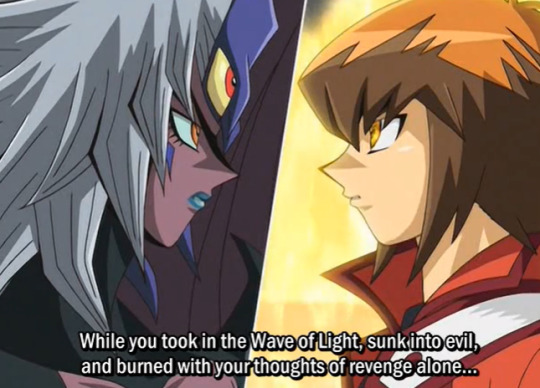
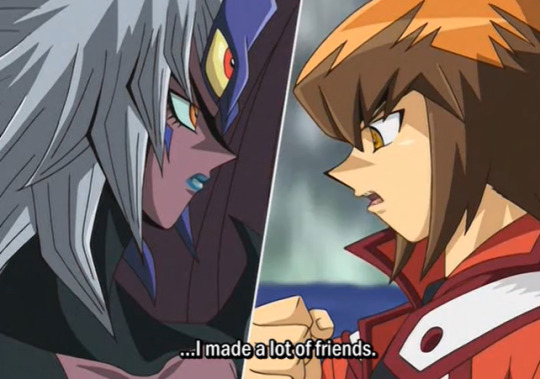
They started at the same point, but by the time they meet again they're completely unrecognizable to each other.
As easy as it is to see them as villain and victim you can flip their roles too. As Judai is responsible for the chain of events that led to Yubel's torture, from Yubel's point of view they are the victim and Judai the villain.
It's unfair to hold a decsion they made when they were five against him. However, abandoning Yubel is a choice Judai continually makes, even after learning Yubel's undergone ten years of torture they were responsible for.
Judai: Yubel didn't come into being by coincidence. I made them who they are.
Judai continually ignores Yubel to search for Johan. However, he's not responsible for Johan. Johan made the choice to sacrifice himself. Wanting to save Johan isn't bad of course, but wanting Johan back is about what Johan represents to Judai not who he is as a person.
Yubel rightfully points out Judai will go so far to save Johan, but won't lift a finger to help them.
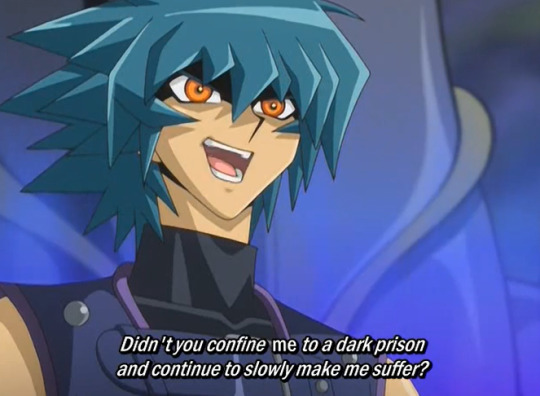
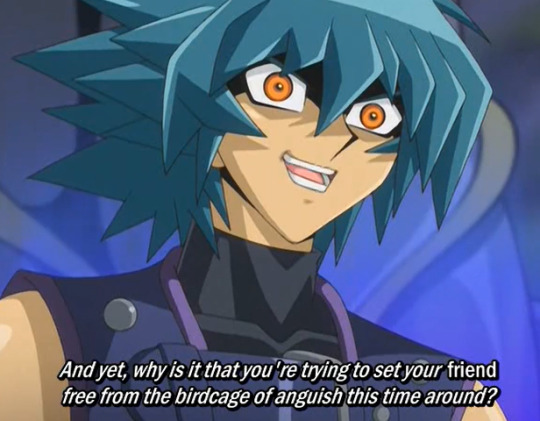
In fact Judai's obsession with Johan, is a narrative flaw (one Yubel reflects for the audience). It leads to his destruction.
Sho even calls him out, his willingness to sacrifice anyone, including his friends for Johan's sake. It's selfishness on his part. To quote this post:
The way he goes after both after Johan in season three and O’Brien shows that he actually doesn’t care all that much for them as people. To him, they represent a concept: Victory, or at the very least atonement for his past actions. A convenient way to right what he did wrong.
That is not to say that he doesn’t like them as people - he does. But when the chips are down, what he ultimately wanted was a chance to redeem himself by saving them.
Yubel's obsessive pursuit of Judai to the destruction of everyone else, reflects Judai's obsessive pursuit of Johan destroying his friends.
To quote the above post again.
Yubel is a deeply selfish person as well. However, it’s a different kind of selfish. Yubel has exactly one priority: Juudai. Anyone or anything that isn’t Juudai doesn’t matter, and Yubel will go after Juudai no matter the situation and no matter the consequences.
They're both two deeply selfish people and Yubel is needed to cast a light of this selfish side of Judai. When the two of them are compared though the image blurs, Yubel doesn't have the right to take their pain out on Judai's friends, but Judai goes on to later do the same thing.
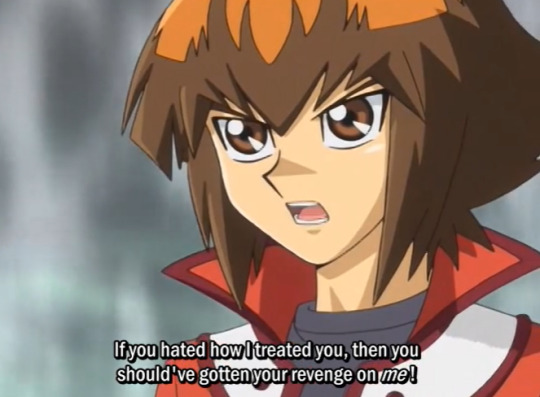
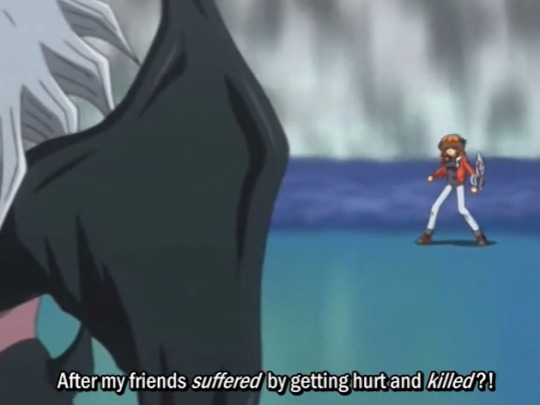
"But then that's the nature of love, isn't it? I wanted all that torment to convey the depth of my love."
Judai rightfully calls out Yubel's involvement of innocent people, but it's hypocrisy on his part. He doesn't have the moral high ground here. Yubel's suffering doesn't entitle them to take out said suffering on Judai's friends, but Judai also slaughtered innocents as the supreme king.
Judai framing Yubel's reaction as revenge is ignoring his own flaws and role in things. Sharing pain = understanding = empathy for Yubel. Yubel wants to be understood, but Judai wants to ignore his shadow.
Yubel's strategy is a kid of forced empathy - to drag Judai down to their level and make Judai understand the same pain so Judai will understand them.
I'm going to quote another post again, this post here.
In her desperation to grasp why she was being made to suffer if Judai loved her, it makes a certain amount of sense that she would latch on to the suffering itself as being something Judai wanted for her. (She knows and admits this isn’t true, btw, but it’s the only thing that allows her even a tenuous grip on sanity) Then, when she was in a position to meet him again, her own views on love would allow her to subconsciously justify making him suffer the same way because her pain had left their life experiences too disparate to form a meaningful connection once more.
And the hilarious thing is that she was ultimately right? Yanking Judai down to her level is what allowed Judai to understand her in a way that was impossible before he had his own little fit of love-induced murder spree.
I think what people sort of miss is that what Judai is reviling her and calling her an unfeeling monster near the beginning of their duel, he’s the one that’s wrong.
This symmetry they eventually reach where they both become perpetrators shows the biggest thing they share in common: trauma, and how they react to it.
Trauma comes to define both Judai and Yubel, but they react in different ways.
Yubel externalizes their trauma, the same trauma Judai hides internally. What Judai conceals, Yubel by acting out their grief on others reveals.
Yubel wears their heart on their sleeve for all intents and purposes. They will act out their pain on others, gleefully, sadistically so. Their entire philosophy of love revolves around the idea that intentionally inflicting pain as a show of love.
However, as stated above that's a coping mechanism. When Yubel says they want to share pain with Judai, it's not revenge, it's a desire for empathy and understanding. Yubel wraps themselves in a blanket of love, to endure years of torture they suffered alone.
Yubel can't just ask for Judai's love though, they demand it.
This too is Yubel shielding themselves, they're coping with their abandonment trauma. Yubel can endure any pain inflicted on them if they convince themselves that Judai still cares, they can crawl out of a crater if it might lead them back to Judai. If Judai rejects them however, they completely fall apart.
Judai too, is protecting himself from fears of abandonment.
Judai's coping method is opposite, he internalizes all his emotions. The pressure of having to constantly rescue his friends, his fears that he can't lose once, or else he'll lose everything. Judai hides it under a smile, and a fun loving attitude.
Judai even states point blank, the reason he always runs forward is because if he stops to think he won't be able to continue. Judai compartmentalizes everything, and it all starts to pile up so high that if he just can't process it.
Judai: I can’t just stay and wait. All this time I’ve run on instinct, never second-guessing myself. If I just stand still now… I’m sure I won’t be able to start running again. And I won’t be able to get to Johan.
Even Judai taking on his friend's burdens, is done out of a fear of being alone. In his backstory Yubel drove all his friends away and it doesn't seem like he made friends until he came to Duel Academia.
Yubel and Judai both spent a significant amount of time alone, and they both fear going back to that time.
When Judai takes on other's burdens, it's a way to protect himself. If he's constantly doing them favors, they have to stick around right? It's still a transactional relationship though, the same way Yubel thinks all of their love entitles them to Judai's love.
Judai's method is to internalize everything. That seems better than Yubel, because Judai's not hurting anybody right? Except Judai's owbmethod of coping turns out to be just as unhealthy as Yubel's.
Judai carries the weight of everyone on his shoulders until he can't.
Judai's fears of being abandoned become a reality.
It's telling that Judai's breaking point isn't Fubuki, Sho, Asuka and Manjoume's apparent deaths. He's deeply upset by it for sure, but what pushes him over the edge is Sho's rejection afterwards.
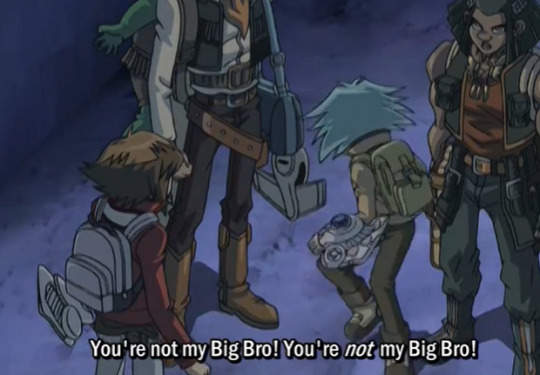
Judai's friends being taken away in circumstances out of his control is one thing, but the fact that Sho leaves him? That Sho sees the part of Judai's self that he's always been hiding and gives up on him. That rejection sends him spiraling, because all along Judai was driven by the same fear of rejection Yubel was.
When Judai reaches his breaking point, he externalizes all the trauma he held within. He starts sacrificing others for power, because he's convinced himself with his friends gone power is what he has left. Judai acts out that trauma on others, as Yubel does with Judai's friends.
In the end Yubel and Judai react the same way to being abandoned, they share the same flaws and the same fears.
Rejecting Yubel, villainizing them, despising them is an act of self-loathing for Judai. However, empathizing with them, understanding, trying to reach out a had to break the painful cycle between them - is Judai accepting himself.
Chemical Wedding
Judai and Yubel become their worst selves when they are alone, they walk parallel journeys in season 3 dragging down Judai to Yubel's level until at last they finally reunite.
This metaphorical union is a chemical wedding, of two opposites coming together. How Judai and Yubel's relationship changes throughout the narrative is vital to how they develop. Their bond develops each of their characters, until they integrate qualities of each other.
The final stage is called a wedding, it's not necessarily romantic but Yubel's 10,000 love confessions can certainly be interpreted that way.
Once again it's not really about what's healthy in a real life relatioship, it's a symbolic journey two characters take in a story. Yu-Gi-Oh Gx uses chemical weddings to develop the romantic relationship between Judai and Yubel.
(What about Bruno - I'll talk about him later next post. Please be patient, I can't cover everything in one post).
Here's another meta on the concept of chemical wedding's in general for a different show. The chemical wedding between Judai and Yubel is woven into the text in may ways.
The show is rife with direct references to alchemical imagery (references to medieval portraits, the solar king and the lunar queen)
A process of death ad rebirth they both undergo multiple times, until their last union where Judai says he might be destroyed by the attempt to fuse with super-poly but he doesn't mind).
The four elements are referenced in the clash between Judai and Yubel, Judai is fire and air - their favorite monster is flame wingman an air and fire hero combined. Yubel is water and earth, their entire deck has a plant motif).
The two of them literally fuse together into someone new. That act is what purifies Yubel's soul by uniting it with Judai, the process of alchemy is purifying metals until they forge gold.
Yubel is also literally a hermaphrodite, and by incorporating Yubel into themselves the two of them together become a hermaphroditic figure.
So that’s the role and importance of the chemical wedding. Pretty vague, right? But over the centuries the most common imagery has been a man and woman--often King Sol/Sulphur and Queen Luna/Mercury--1. standing together, 2. conjoined, or 3. combined into a hermaphroditic figure.
-In the Dictionary of Alchemical Imagery, Lyndy Abraham definition of chemical wedding.
The basic formula of a chemical wedding is the union of opposites (Fire and water, air ad earth, sun and moon, light and dark), that union creating a "Rebis", a figure that is both male and female. Judai and Yubel's journey takes them on a path to uniting as one.
It's a violent sometimes dangerous process as in each step dissolve et coagula occurs, in order to forge your better self you have to let your old self dissolved, which is sometimes a violent even painful process.
It's why Chemical Weddings often take the form of violent conflict. A conflict that threatens to destroy both parties.
The first chemical wedding is usually somewhat violent, primitive even, whereas the second one signifies the creation of the stone. However, characters can have more than two weddings (Hamliet).
Yubel and Judai have three violent confrontations in Season 3, before their final union of opposites take place. The three weddings are the three steps in their journey. It's also a process where both experience several metaphorical deaths, before finally their two souls unite into something new (which is why the ship is called Soulshipping).
SOULSHIPPING WEDDINGS - STAGE ONE
Alchemy is a process of continual death and rebirth. Yubel and Judai both go through two symbolic deaths, (the second one they die together to reforge themselves into something new).
Yubel's first death takes place sometime during season 1 and 2. The satellite containing them finally crashes back to earth, and Yubel burns up upon re-entry. Putrefecation, or Nigredo is the first stage of alchemy a process of boiling away all impurities, and it's associated with the element of fire, and associated with the color black. Yubel's spirit form of a black dragon comes out to protect them, and that burns away too. Nigredo is often signified with the death of a dragon.
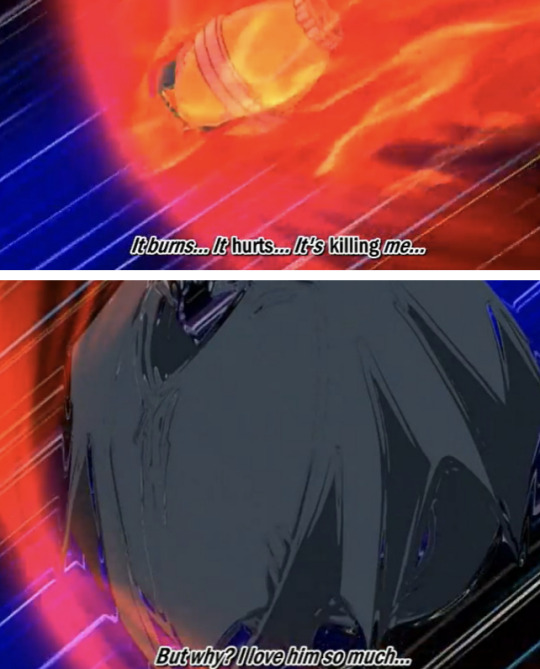
Yubel comes close to death, but their true death is metaphorical.
What Yubel truly experiences is the death of their old self, as the trauma they've endured makes someone new crawl out of the wreckage.
This is the moment onscreen where Yubel snaps and adopts their new philosophy of love, that love is sharing pain with someone else.
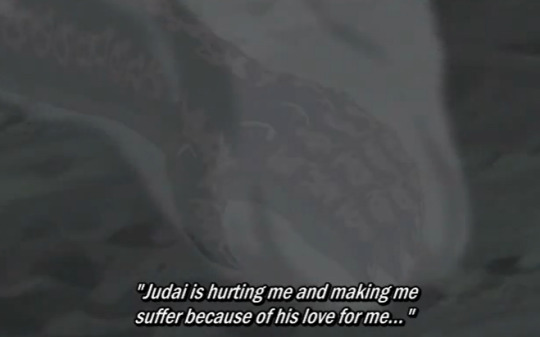
Yubel literally crawls out of earth, out of a crater that could have easily been the sight of their grave. However, their rebirth comes when Yubel reconstitutes themselves in time to meet Judai face to face a second time.
Yubel's true form is revealed then to be that of a rebis.
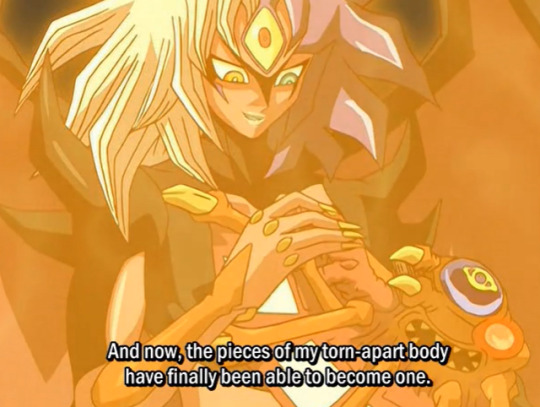
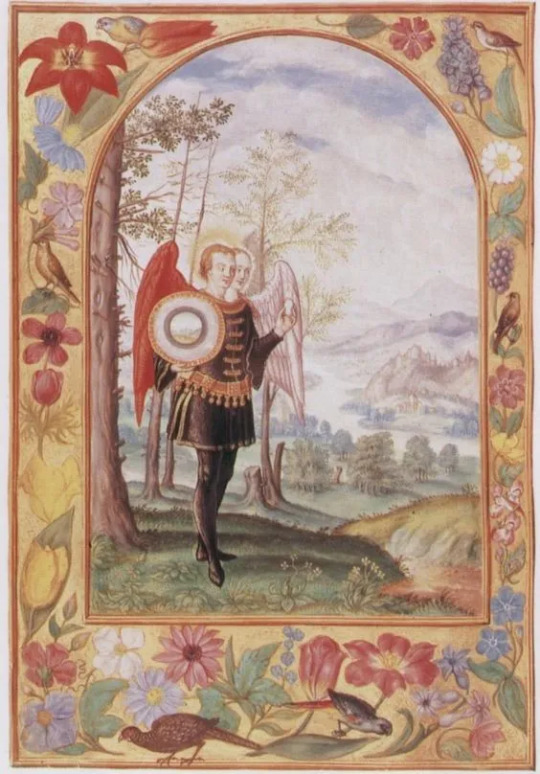
The head on the left is male, the wing attached to his side is red. The head on the right side is female; the wing attached to her side is white and in her hand she holds an egg. This figure is known as the Hermaphrodite, half man and half woman.
Yubel's design is a Rebis, split male and female down the middle. It's even implied in their backstory they were more masculine, and through an alchemical process to become a dragon altered their body to look as such, giving them several feminine traits.
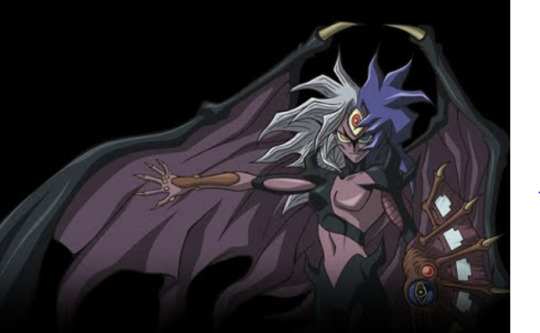
Yubel as one boob and one pec, speaks in two voices a deep masculine one and a light feminine one, defaults to using masculine "ore", but plays a feminine role to comparison Judai's more straighforward masculinity, they even have their face split one side being drawn with eyelashes. The image above is the hermaphrodite and the dragon, Yubel is both.
Yubel can be a reference to the greek story of the hermaphodite or the concept of the Hindu god "Ardanareshwara" which translates to "Lord wo is half woman." Likely both, they have a third eye on their forehead in the place of a bindi in traditional depictions of that god.
Ardanareshwara is the embodiment of the union of male and female energies in the universe, as well as the sacredness of marriage and copulation. [Mythcrafts]
The Splender Solis pictured above are images from the ripley scroll, a in alchemy text. There are 22 plates total, but plates 5-11 are called the parallels they reference the process of death and rebirth.
The seven parables are:
Plate 5 - Miners excavating a hill
Plate 6 - Philosophers beside a tree
Plate 7 - The drowning king
Plate 8 - Resurrection out of the swamp
Plate 9 - Hermaphrodite with an egg
Plate 10 - Severing the head of the king
Plate 11 - The bath
Season 3 goes through all seven, quickly covering the first two plate 5 is mining the Rainbow Dragon out of the side of a mountain, Philosophers beside a tree is Johan's deck using crystal tree, and also Judai awakens after Austin snaps him from his Haou phase underneath a tree.
Judai and Yubel's parallel journeyes reference plates 7-11, #9 was already pictured above.) They both experience two deaths, two rebirths, before their final third union.
Yubel's second death occurs here, at the hands of another dragon (Rainbow dragon is involved).
The first chemical wedding is usually somewhat violent, as metals need to be melted down and reforged through multiple steps in order to create a purer metal.
Judai definitely doesn't want to unite with Yubel their first encounter, they're at each other's throats, in fact Yubel specifically states they want violence, to share as much pain with Judai as possible.
Yubel ends the first wedding literally dissolving gain right in front of Judai's eyes, only to reforge themselves with Johan's body.
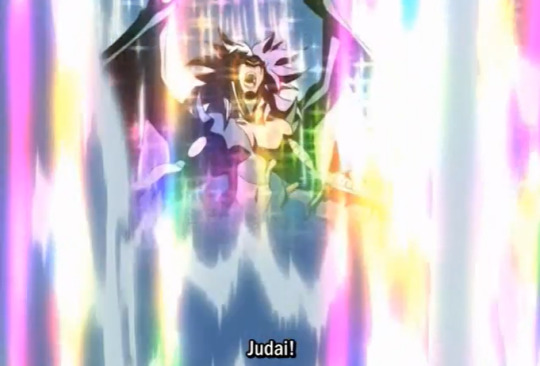
Those are Yubel's two deaths, and Judai's two deaths happen in parallel.
SOULSHIPPING WEDDINGS - STAGE TWO
Yubel is the process of two people breaking down, and mixing until they acquire each other's traits. Yubel pushing Judai down the path of becoming the supreme king, so they can be reunited again is exactly that.
Yubel's plan is to force drag Judai down to their level, so they can be reunited, and at that point Judai having walked a similar path and taken on traits of their can understand them, they tell Judai as much.
So when I solved the riddle you posed I was delighted. ANd that fueled my decision. I would try to fill the entire twelve-dimmension universe with my love towards you, Judai. And once I did, you would have to recognize my loev wouldn't you? That's why I sought to fill all those linked to you, your world, with sadness and anguish.
And my line of thinking wasn't wrong!
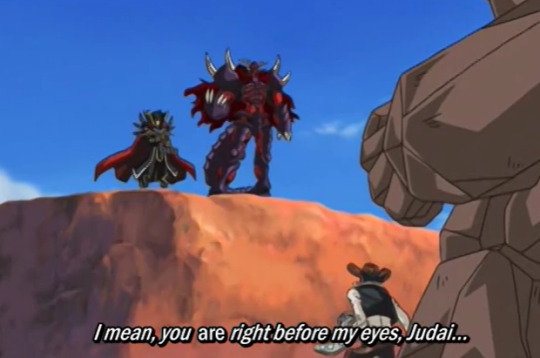
Judai has to go through a process of two deaths mirroring Yubel's own before he can reunite with them in their second wedding. Yubel even says, the first time they dueled didn't work out, because Judai hadn't awakened his darkness of the heart yet. Judai needed to take on Yubel's traits.
Judai's journey to Yubel is referenced by two Splender Solaris plates.
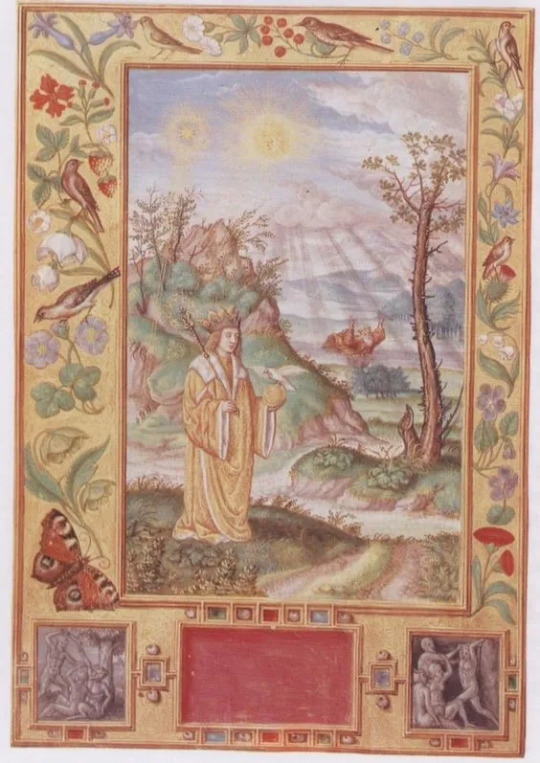
"The destruction of one thing is the birth of another " - Aristotle.
The plate depicts an old king drowning, and a new king being reborn at the same time.
The text describes to us how the old king was taken under, but then reborn the next day from the earth as the new king; the old king must die before the new king is born.
Judai's first death is his breakdown after Sho's rejection, he quite literally experiences a death or self, while at the same time rising up as the supreme king - but it's not a split personality or anything like that, merely an inversion. Judai once internalized their pain, now they externalize like Yubel. Yubel in acquiring darkness of the heart, Judai then begins to take on Yubel's traits, integrating facets of Yubel into themselves.
Within the stages of physical alchemy there is a set referred to as the drowning king; this is the dissolution step of the Nigredo process. This is when the alchemists would take their chemically calcified ashes and dissolve them into water.
Judai experiences the same Nigredo that Yubel does, as his old self dissolves away. Judai sinks into a mental landscape which is pictured as all black, while a new Judai the supreme king assumes his form out of the shadows. The new king has golden eyes, like the new king in the painting is dressed in gold.
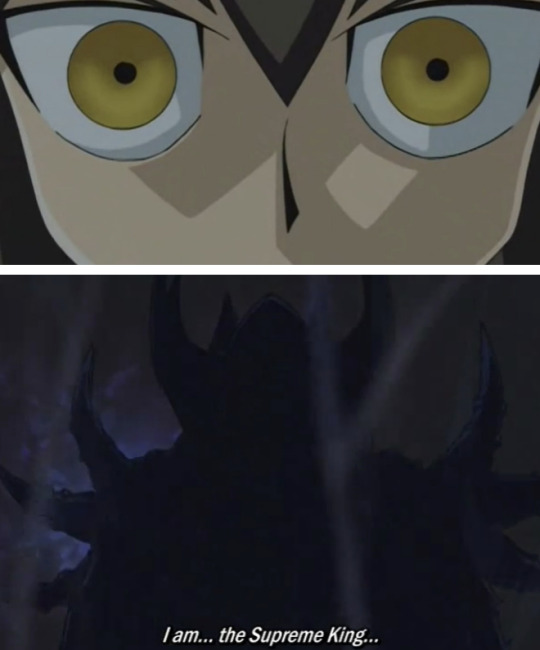
This is where Judai begins taking on parts of Yubel, not only do they lash out at innocent people as Yubel does, don a plate of armor to protect themselves (Judai has black armor, Yubel has impenetrable scales).
It's also a direct parallel to Yubel's experiences. Judai is left alone by the friends who he thought would always take his side and sinks into darkness. Yubel spends years alone in what they call "a capsule of darkness" in space after Judai's abandonment, sinking into denial because Judai couldn't possibly treat them this way when they love them so much.
Judai dies and is replaced by the supreme king, but the supreme king is a just a temporary stage in his development.
In order for Judai to heal he needs to be dismembered first, the Supreme King's head is torn off in a reference to Splendor Solis: Plate 10, severing of the head of the king.
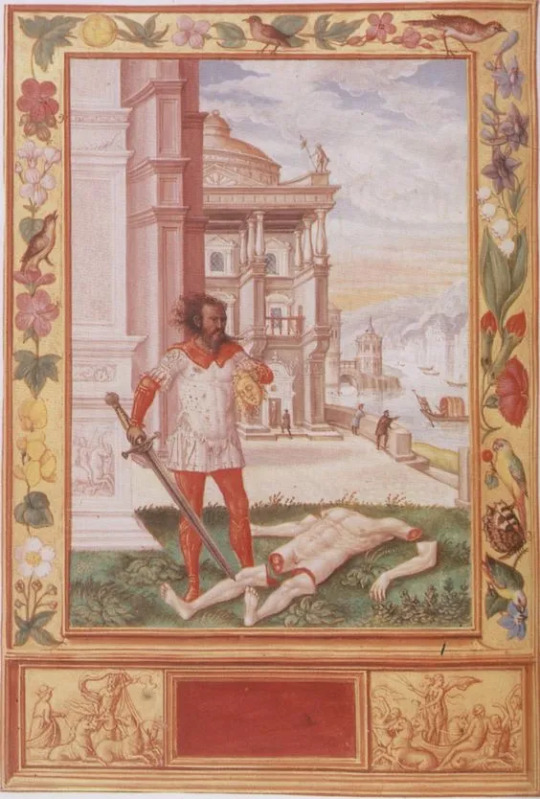
Alchemy is violent; the motto of Solve Et Coagula demands dissolution before rebuilding, tearing apart before putting back together. This idea applies to the material world as well as the spiritual realm; before the psyche can grow, it has to be ripped asunder.
The Supreme King is eventually stopped by Austin, they burn away in in fire, against a duelist with a flame deck, reduced to ash only to rise from the ash reborn like Yubel did out of the crater.
After the end of the duel, Judai's helmet is removed and thrown for all to see to signify the king's dismemberment.
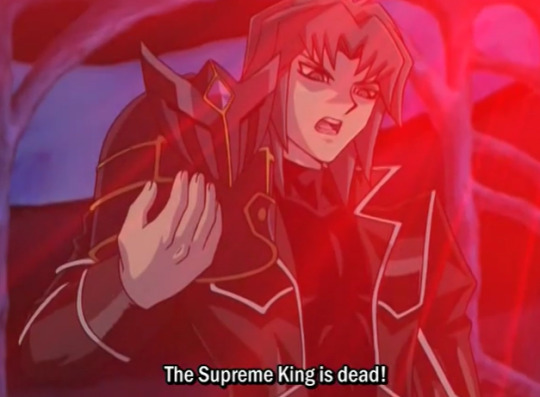
Judai now struggles to become someone new, as he cannot return to his previous state of innocence, but can't keep continuing on as the Supreme King. When Yubel and Judai reunite again Judai has taken on so many of Yubel's traits, they are mirror images of one another.
The second stage of alchemy is albedo, the word is taken from ablutio - the washing away of impurities. When Yubel and Judai meet for a second time, Judai's only priority is to cleanse Johan of Yubel's body, literally through purifying Rainbow Dragon in order to return Johan to his body.
His action in the duel is to destroy the "advanced darkness" field spell which changes Johan's crystal beasts, into darkness crystal beasts. First Nigredo, then Albedo, the prima materia is boiled in a flask where all impurities rise to the surface and make a thick black material, and then those impurities are washed away.
Cleansing Johan's soul doesn't go as intended for Judai however, because the only result is that Yubel reconstitutes themselves for a second time and faces Judai again in their true body.
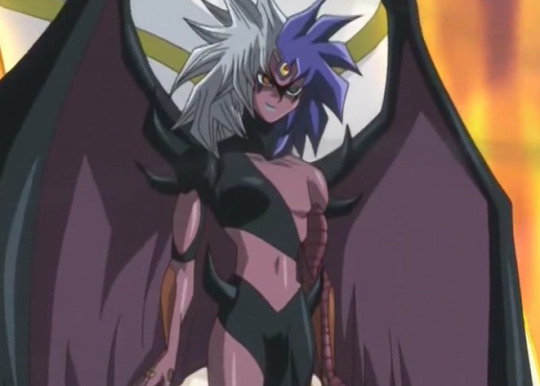
The cleansing turns from Rainbow Dragon from Black to White and both Yubel and Johan are purified into their true selves.At this point they've both experienced multiple deaths, they've both been torn apart and sewn back together again. However, they still have one stage to go.
The duel ends in a draw and they restart another duel facing each other this time, thus beginning the third and final wedding.
SOULSHIPPING WEDDINGS - STAGE THREE
The final wedding in a chemical wedding forges a philosopher's stone, and I bet you can't guess how this third wedding ends.
Everything so far has made use of the death and rebith imagery. Yubel and Judai grow closer each other through a violent union of opposites (extremely violent in this case ). They experience two metaphorical deaths as a part of their journey to finding each other.
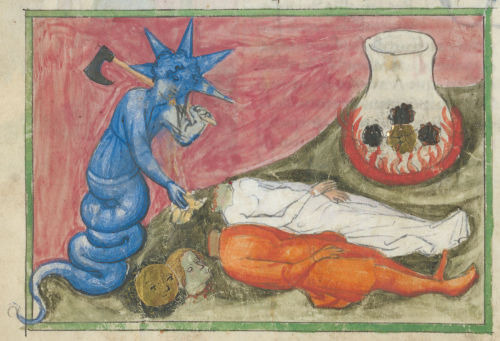
Death and Rebith is a major theme in the last duel, before they both experience their final death together, to become a new being together.
As I said above they've experienced several violent deaths, Yubel is ripped to pieces until they're nothing more than an arm, Judai experiences an ego death and reforms as the supreme king, before the supreme king's armor is torn off him.
In the third duel Yubel's signature monster experiences two deaths, only to be reborn again into stronger forms, yubel terror incarnate, and yubel the ultimate nightmare.
Yubel starts as a one headed dragon, their second form has two heads, their third they fuse with the dragon becoming the third head representing the three stages of alchemy. In the picture above the red, white and blue signify those three stages as well.
Judai and Yubel are also positioned as the Solar King, and Lunar Queen in their duel, just as in the alchemy painting above.
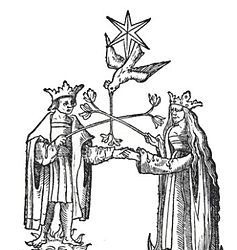
The above image image is taken from is called Rosarium Philosophorum–which literally means “rose garden philosophy. In this case I believe the anime writers are deliberately reference the "rose garden philosophy" name b/c even Yusei and Aki in 5Ds have a similar duel in a Rose Garden that parallels this duel - representing their union of opposites too.
The final duel between Judai and Yubel takes place in a rose garden, intentionally so. Yubel uses two rose themed cards, and their method of attacking and sharing pain nightmare pain revolves around lashing out with a vine covered in rose thorns.
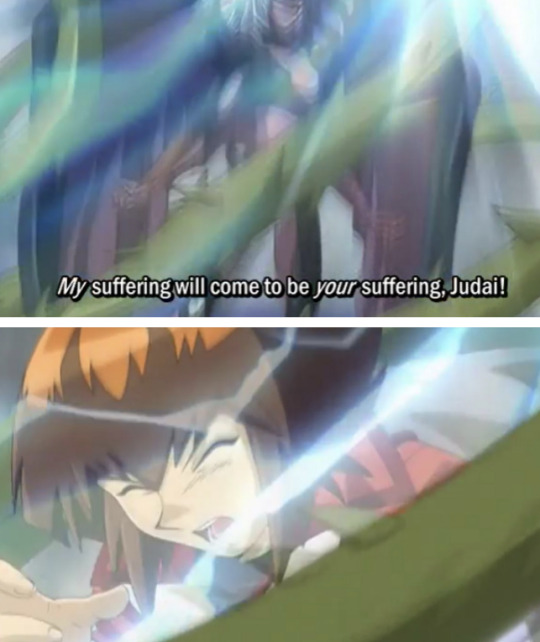
They're both entangled in the rose garden together, as Yubel says my suffering will become your suffering, Judai. Yubel isn't immune to pain they suffer alongside him, for Judai hurtng Yubel is an act of hurting himself. That's also a reference to the ouroboros, the snake biting it's own tail is a common symbol associated with initiating the alchemical process.
Judai has taken so many traits of Yubel at this point they are inseparably intertwined, there's no telling where Judai ends and Yubel begins so any damage Judai attempts to do is dealt to himself as well.
Standing together in the garden Judai assumes the role of the solar king, and Yubel the lunar queen.
Yubel's machinations were to make Judai ascend into a king, Judai is referred to as being like the sun by Sho drawing everyone in.
Bro... Bro, you're too selfish. Before now, I thought of you as the sun. Someone who gave others energy and made the impossible, possible.
Yubel is the moon which orbits around Judai. There's the time they spent in a literal satellite, floating in space among the stars to signify this. Yubel even drops a reference to the myth of Endymion. A story where Selene, the titan of the moon fell in love with a young boy and asked for them to fall asleep and stay young in their sleep forever so they could gave upon them lovingly as they slept.
I will take you to a distant dimmension, where no one will ever reach you. There I will watch over you as you sleep forever.
Once again Judai is fire, and Yubel is mainly plant themed. Judai assumes a masculine role, Yubel after transforming into a Rebis changed their body to take on feminine traits. Judai is the holder of the gentle darkness, Yubel is corrupted by the light of destruction which is engaged in a battle with the gentle darkness.
Theirs is a violent union of opposites, they are literally trying their best to kill each other.
Yubel frames themself as the selfless protector of Judai like a knight or servant, but their obvious desire is to stand together with Judai and be on the same level with him (hence dragging him down).
They spend a duel against Amon reviling him for how easy Amon could throw Echo away, because ultimately Amon is the king, and therefore Echo is beneath him. In fact Yubel was content to just sacrifice their body like Echo and serve as a protector in a previous life, until prince Judai offered Yubel their eternal love, giving something in return and elevating to them as equals.
So Yubel's primary goal is to be by his side, to be lunar queen to his solar king.
In order to accomplish this the art depicted above has to happen, they both have to dissolve, experience a death and become something new together.
Judai even explicitly tries very hard to kill Yubel, saying they'll use the power of the supreme king to erase them from the universe. Yubel similarly, rejected one too many times responds to violence with violence. Their union is inherently marked by violence. However, it's what brings them to a closer understanding of each other.
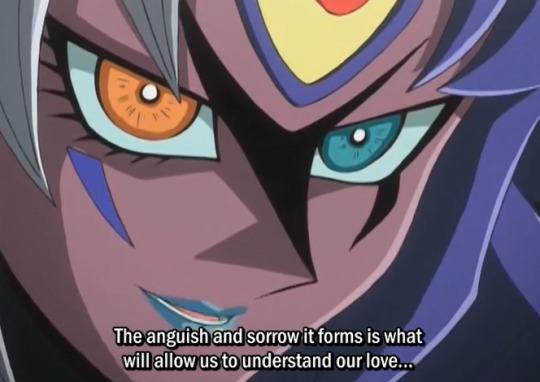
However, while violence brings them closer together, it eventually has to transform into a a union.
As they reach the final stages of the duel, Yubel states to Judai they finally understand that Judai has chosen to respond to all of their love with hate (once again union of opposites, love and hate). At the same time a wind begins to blow, elemental symbolism occurs as the wind and clouds appear in a process of "sublimation", and Judai's past is revealed to him, and he realizes his memory of his past life of the Supreme King.
Sublimate appears as a term for a mineral deposit, by analogy to the alchemical process: minerals in a vapor state, thrown up from the interior of the earth.
The introductory of the element of air also signifies Yubel and Judai moving from Citrinatis, the yellowing, signified by earth to Rubedo the final stage where the philosopher's stone is forged. Judai and Yubel's first duel takes place in a desert (earth), their second they climb high into the sky, and their third they climb even higher until they are standing above the clouds fighting in an arena of air.
Sublimation is a whole new experience of self and reality, both being redefined. Judai's reconciliation isn't just Yubel, it's with the three faces of himself Prince Judai, Regular Judai, and Haou / Supreme King. These memories lead to Judai's eventual decision, to propose a union. This union takes place as the last chemical wedding, which is also a real wedding in everything but name.
Their entire duel contains elements from both japanese and jewish weddings (the three phantasms that Yubel utilizes in the duel against amon are based off of three kabbalistic angels so the jewish symbolism has already been used before).
A traditional Jewish wedding starts with drawing up a marriage contract (Spell Chronicle), and the bride paying out a dowry (the five cards Yubel banishes at the start of the duel). The wedding must be observed by a minimum of two witnesses (Shou and Ojama Yellow). During the wedding the bride circles the groom seven times (Yubel makes 7 successful attacks on Judai between their 3 forms, all others were negated in some way). At the end of the ceremony, the groom presents the bride with a ring (Judai giving Yubel Super Fusion), and a glass is broken to the cry of “Mazel tov!” (the glass window breaking in Samejima’s office). Finally the ceremony isn’t considered complete until the bride and groom retire away from everyone to ... consumate the marriage (Judai and Yubel leaving together).
Source [HERE]
Judai attempts to use super polymerization card to start the process of alchemy (fusing the 12 dimmensions - there are 12 steps to Alchemy). However, Judai announces that the two of them are going to fuse together.
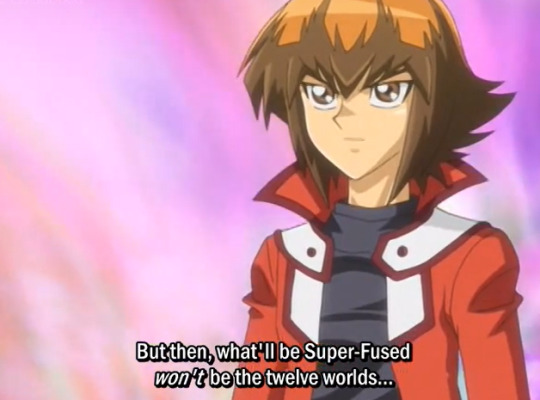
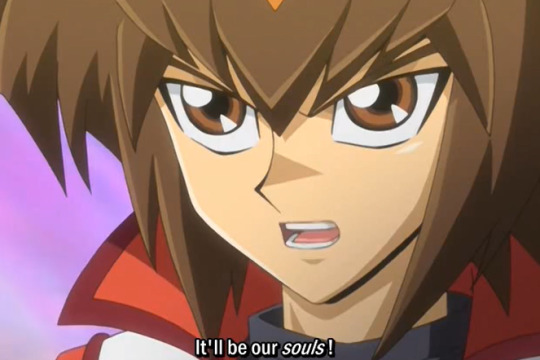
Judai and Yubel's quite literal fusion into one being is the formation of a hermaphrodite. From the essay of "Get your Gender On, Jaden Yuki and Yubel",
Art historian Arturo Schwarz argues that “the Great Work is but a metaphor” in which alchemists don’t create a Rebis but become a metaphorical Rebis themselves, as Judai does over the course of the series. By joining his soul with Yubel’s through “Super Polymerization,” he arguably becomes nonbinary like them. Even before literally fusing with Yubel, he gains “aurea apprehensio (golden awareness) of this marvelous reality: we are gods, because we all are man and woman at one and the same time.”
Hermaphordadites are a recurring symbol in a lot of greek mythology, the name comes from Hermaprhoditus a son of Hermes and aprhodite originally born male. A female nymph fell in love swam to him in a pool and wound herself tightly around his body and begged the gods to never tear them apart creating the co-joined male and female figure the hermaphrodite. The parallels to Yubel and Judai are present, especially in them becoming entangled in one another.
One origin story for humanity is also that human beings were originally two headed, four armed, and four legged beings, combination of men and women, men and men, and women and women. However, they were torn apart into two seperate beings, and forever doomed to go searching and be reunited with their second half.
When opposites are finally reconciled, the great hermaphrodite is formed. Judai even refers to this as an act of finally purifying the light's corruption from Yubel's soul by uniting it with the supreme king's soul. The union is a purifying process, and the end of Yubel and Judai's long journey of losing each other and finding each other again.
However, in order to be purified they have to both let their old selves die in order to form something new, the final death but one they experience together. Just like the painting of the dismemberment of the solar king and lunar queen, they need to be torn apart and sewn back together again.
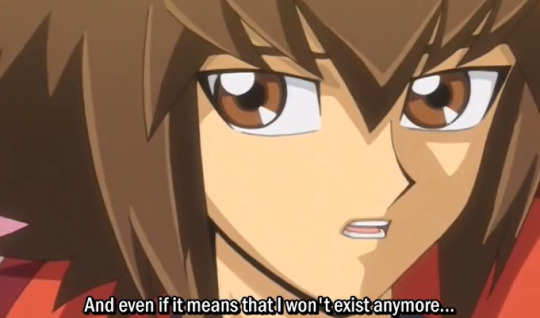
I don't care.
Yubel is finally moved, and all the anger between them is washed away by tears as they're finally allowed to grieve (as death is central to alchemy, so is grief, both are parts of life).
To signify the end of this journey, Judai falls to earth the same way Yubel did at the start of their story. However, while Yubel was suffering, all alone, this time Judai and Yubel are together.
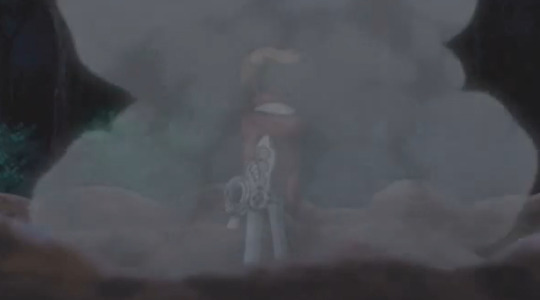
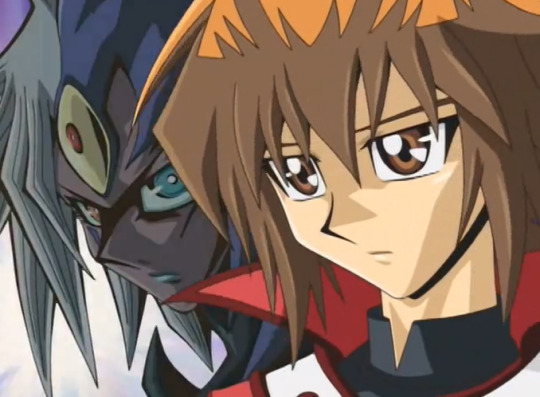
#yu gi oh gx#yu-gi-oh gx#judai yuki#yubel#soulshipping#yu gi oh gx meta#ygx meta#alchemy#jaden yuki#ygo meta
43 notes
·
View notes
Photo
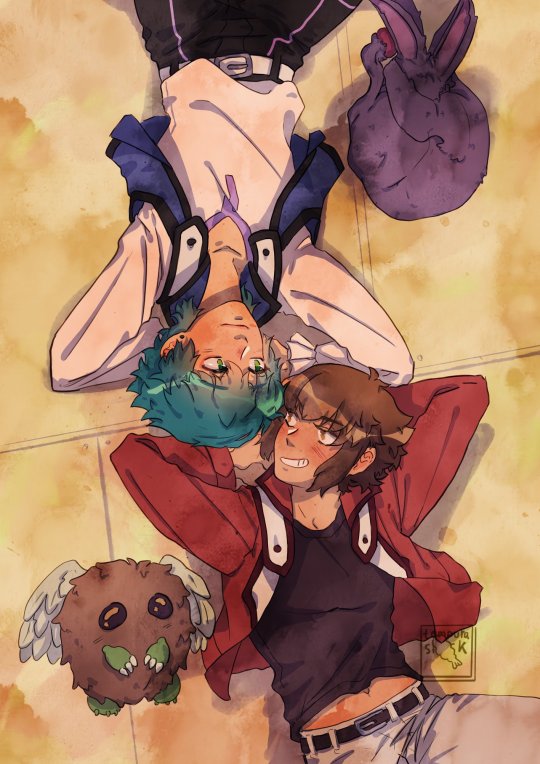
369 notes
·
View notes
Text
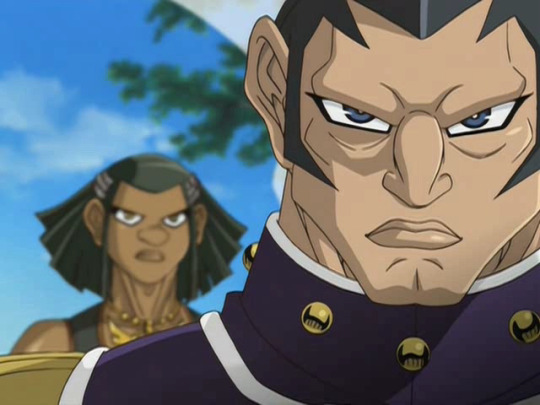
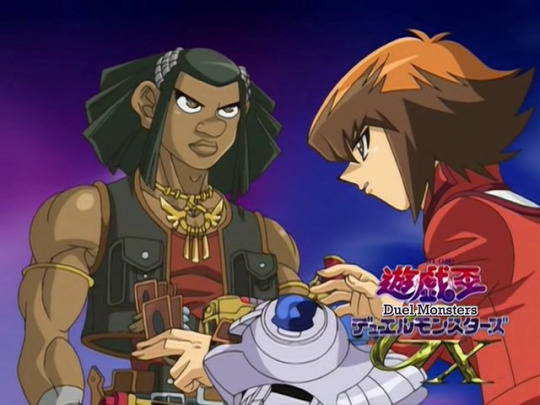
Yu-Gi-Oh! Duel Monsters GX Episodes 108-109 Subbed (Finalized)
(Previously: Episodes 106-107 Subbed [Finalized])
(Check out my Subbed!GX Stream Masterpost!)
TURN-108: Professor Cobra's Assassin
Professor Cobra announces the "Disclosure Duels," a system of publicizing one's skill and performing duels openly. He also provides all of the students with their own Dis-Belts to gauge their fighting spirit through their passion, focus, and decisiveness in those duels. Cobra then orders O'Brien to duel Judai--and to do so in a way that brings forth all of Judai's latent abilities. Putting his strategy into action, O'Brien takes Shou hostage and duels Judai.
TURN-109: Judai and the Fiery O'Brien
O'Brien aims to bring out all of Judai's latent abilities by using Shou as a hostage. As expected, Judai causes a serious battle to unfold, which he responds to using his Fire deck, activating his Firewall Permanent Trap against Judai's direct attacks to negate his attempts to attack him directly. For his part, Judai Contact-Fuses Neos with Flare Scarab, summoning Flare Neos for a counterattack, but...
~~~~~~~~~~~~~~~~~~~~~~~~~~~~~~~~~~~~~
Sorry, didn't mean to leave these two episodes hanging for just over a month~ sorry Shou
Episodes 108 and 109 are now finalized! Professor Cobra comes in and starts up the Dis-Duels, which will play a big role in this early part of the season, and we get more time with O'Brien as he duels with Judai on Cobra's orders and ends up having a little fun with it towards the end. It's a fun duel, O'Brien makes a fiery entrance with his Blaze Cannon/Blaze Cannon Trident cards, and I love the sequence in 109 as Judai uses Flare Neos with probably my favorite use of the "Fervent Duel" OST track. Also, 109 in general is a fun episode because of all the top-notch artwork going on, with some interesting angles or some really good motion frames from the animation team (Judai ordering Featherman to swoop in against O'Brien [which gets reused once or twice] is so good). Also nice character moments with Shou about reconciling his ideal from Ryou about respecting opponents with the need to have all-out heated duels to survive, a nuance that gets lost in the dub for the most part. Though speaking of the dub, I did like Axel's (O'Brien's) dub voice for the most part, though it has a rough spot or two later on when he's cowering from the Supreme King.
Animation error-wise, we mostly have some quality-of-watching touch-ups, as there weren't any card errors I picked up on; 108 had one minor touch-up near the end, while 109 had just over a handful of mostly split-screen touch-ups. Details below the cut for the interested, as always~
Quick housekeeping: in case you missed it, I reuploaded 105-107 after noticing I didn't catch an update to one of the names under the In-Between Animation credits, along with some minor consistency fixes in the rest of the credits; these were reposted over on NAC and updated in the Masterpost linked above, and 108-109'll join them on NAC in the next day or two.
Anywho, enjoy! With these done, I'll probably go back to some fixes I've been working on for episode 1 that I missed, then I'll get a bit more looked over on Tag Force Special stuff (in case you missed that news~) before working on 110 as a quick two-parter break; stay tuned!
Fixes/Edits! (108)
Near the end of the episode, as O'Brien draws for his turn, there's a coloring error with some shading along the bottom of his left shoulder where the shading is lighter like with the lighter spots higher up; it's fixed for a few frames but then goes back to lighter. Fixed this by recoloring that shading spot in the frames during the quick zoom-out that happens using Photoshop, then masked out and held the shading in the last fixed frame for the rest of the shot.
Fixes/Edits! (109)
After the 108 recap but before the OP, we get this quick scene with Cobra watching on and saying that, even if he loses, O'Brien has to bring out all of Judai's Duel Energy (a scene cut from the dub [I wonder if this error is why]), but there's an odd animation error that happens where the line on the upper left of his mouth (his left) and the jaw shading are pixels away from where they should be--this only happens for the frames where he has this fully open lip-flap and his semi-open lip-flap going. Fixed this in Photoshop by redrawing the mouth line and filling in the jaw shading along the shading that was there.
Later, after O'Brien activates his Firewall and asks Judai if he thought weak attacks would work on him, Judai notes that O'Brien didn't summon any Monsters so it wouldn't be any fun not diving right in; a semi-surprised O'Brien slides in on a split-screen acknowledging this, but there's a quick frame as the split-screen is completed where the border flickers into its final position--fixed this in Sony Vegas by just replacing the earlier frame with the latter. Then, as they split off the screen to show Shou behind them, Judai's side takes a frame longer than O'Brien's to fully get offscreen; fixed in Vegas by using the frame after in that frame's place.
Later, Judai grunts after O'Brien uses Burial from a Different Dimension to return three Fire-Type Monsters to his Cemetery, and O'Brien slides in on a split-screen to say that he's removing one from it to activate Firewall against Flare Neos's attack--but Judai starts moving for it a couple of frames before O'Brien actually starts sliding in, and along with that, the border on their split-screen ends up being off-center. Fixed these in Vegas, first by redoing the split so it's timed with Judai moving, then ending the slide-in with the border centered, moving O'Brien's side into place so that his mouth and hand move properly for the rest of the split-screen. Then, a frame before they start splitting apart as Firewall activates, O'Brien's side moves but Judai's stays still; fixed by holding the split-screen still over that frame.
A bit after, once Judai uses Contact Out to de-fuse Flare Neos and attack to make O'Brien run out of Monsters to remove from play, O'Brien grunts as Judai slides in on a split-screen to remind him about Flare Scarab's power-up effect--but like with Judai in #3 above, O'Brien starts moving for the split-screen a couple frames before Judai starts sliding in. Then, as their split ends, there's a quick frame where they start to split apart to show Flare Scarab behind them but don't actually split; this is likely why their splits then end up sliding out unevenly. with Judai's taking an extra frame to fully slide out. Fixed these all in Vegas by first redoing it so that Judai's slide-in is timed with O'Brien moving; then, I masked in part of Flare Scarab from the next frames over them as they start to split, adding a new border to O'Brien and Judai's splits; and then finally, I redid their split-outs so that they were timed evenly.
After the eyecatch, we see more of Cobra watching the duel, and Judai and O'Brien come up on a split-screen with their current LP counts--they start to split apart a frame before their LP counts disappear to show Cobra, with this quick frame having just white behind them, along with O'Brien's split missing its border. Fixed this in Vegas by just holding the previous frame over it so that the split-out starts in the next frame, once the LP counts are gone.
[continued below because of dumb characters-per-"block" limits]
(6) A bit later, after O'Brien lets Shou go, Cobra looks on in surprise, but there are a few quick frames where the shading along his jaw is incomplete; fixed in Photoshop for the lip-flap frames where it happens, then placed them in the footage in Vegas and moved it into place as needed for the panning shot here.
(7) After O'Brien loads his Volcanic Buckshot into his Blaze Cannon Trident and deals 2000 damage to Judai, he starts to explain Trident's role in that, but Judai's betting that there was more to it; O'Brien slides in on a split-screen to say as much as he explains Buckshot's role, but his split-screen's already halfway into the screen in its first before sliding the rest of the way in, and like with #3 above, the border on the split-screen somehow ends up off-center. Fixed these in Vegas by redoing his slide-in so it slides in more fluidly. Then, because of how off-center the split-screen is, as they split apart, O'Brien's side takes longer to slide out; fixed this, after re-centering the split-screen, by redoing their slide-outs to be timed evenly.
#GX#yugioh gx#yugioh#ygo#ygo gx#yu-gi-oh gx#yu-gi-oh! gx#my subs#Judai Yuki#Austin O'Brien#feelin' the heat yet#[now to go feel some heat from a jog lol]
20 notes
·
View notes
Text
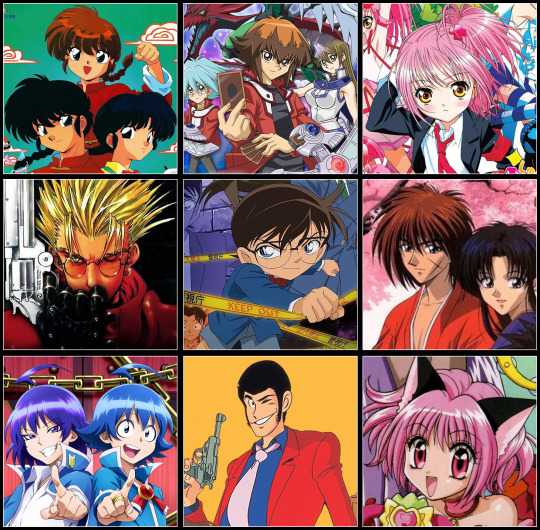
...I wound up making an anime 3x3 thing...Is anyone who knows me surprised?
#my edit#one of these causes more shame than the others#if you know you know#Ranma 1/2#Yu-Gi-Oh GX#Shugo Chara#Trigun 98#Detective Conan#Rurouni Kenshin#mairimashita! iruma kun#Welcome To Demon School! Iruma Kun#M!IK#Lupin III#lupin the 3rd#Tokyo Mew Mew 2002
24 notes
·
View notes
Text
ROUND 1A, MATCH 12 OUT OF 16!
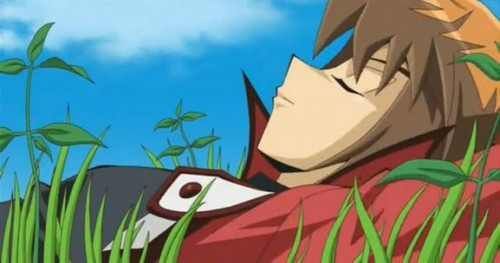
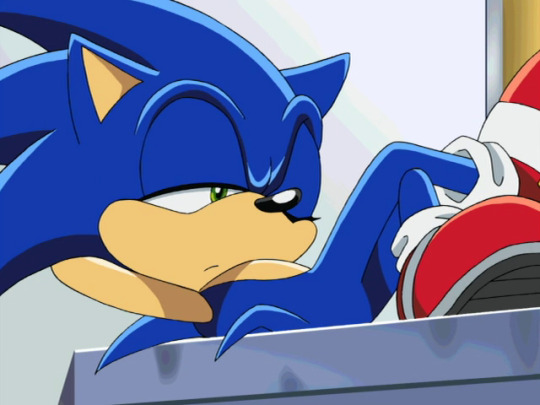
Propaganda Under the Cut:
Judai Yuki:
He's my blorbo. I mean! Being sleepy isn't his main character trait, but him napping in class all the time & overall is just very sleepy when he isn't dueling or saving the world. I love him so much. Best Yugioh protag (in my opinion) (though there are a lot of good ones...)
Sonic the Hedgehog:
he very often is shown relaxing (attempting) to sleep somewhere, hates being woken up/waking up in the morning
Over multiple pieces of media, Sonic is a very sleepy guy. This is mainly seen in Sonic X (where he’s often seen napping on Chris’s roof in the first two seasons), but can also be seen in other pieces of media (for example, part of his idle animation in Sonic Generations includes him falling asleep waiting for you to start playing the game again, although this is specific to Modern Sonic. Additionally, Sonic and the Secret Rings opens on a shot of Sonic asleep with a copy of the Arabian Nights on his face) and is a common part of fanfiction. He just appears to prefer to sleep if he’s not running or busy, and it’s very fitting for a hedgehog because from what I’ve seen hedgehogs sleep a lot.
#round 1#round 1a#sonic the hedgehog#sonic#yugioh gx#yu-gi-oh gx#gx#judai yuki#jaden yuki#poll tournament#poll bracket#character polls#polls#sleepyhead poll
25 notes
·
View notes
Photo
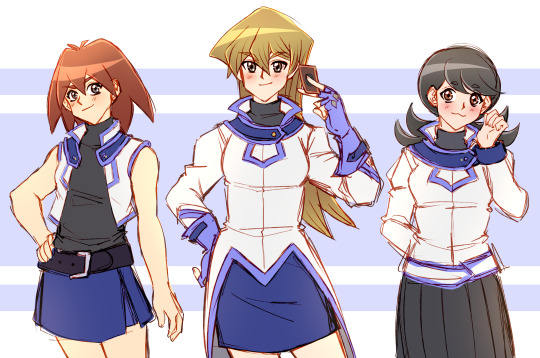
GX girls💙
#ygo#yugioh#yu-gi-oh gx#alexis rhodes#asuka tenjoin#momoe hamaguchi#makurada junko#ygo mindy#ygo jasmine#asuka's friends were written so bad and done so dirty#like asuka's whole thing was she didnt want to get looked down on for being a girl#so how good would it have been if her friends who were a bit shallow at first actually developed after becoming friends with asuk#and then during the tag duel tournament they pair with each other and not some rando guys#anyway also junko's eye colour is momoe's hair colour and vice versa#is that not just the cutest thing#i could talk for ages#anyway i've adopted them and now they live separate from canon like this#same with asuka#they deserved better#also the girl's uniform sucks ass so i'm also just gonna ignore it now#illust
184 notes
·
View notes
Photo


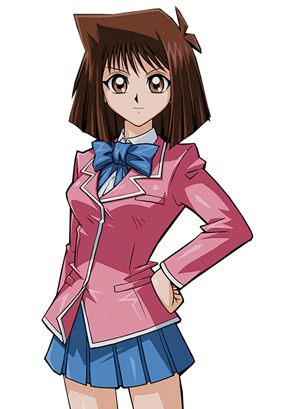
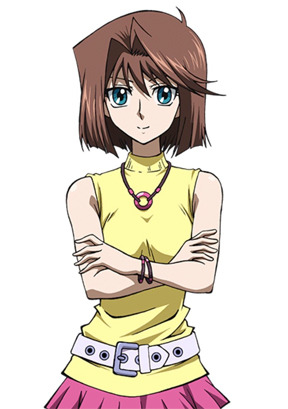
Today’s character of the day is: Téa Gardner aka Anzu Mazaki from Yu-Gi-Oh
#Anzu Mazaki#Téa Gardner#Tea Gardner#yu-gi-oh#Yu-Gi-Oh! Duel Monsters#Yu-Gi-Oh! The Movie: Pyramid of Light#Yu-Gi-Oh: The Dark Side of Dimensions#Yu-Gi-Oh GX#anime#YGO#Yu Gi Oh#videogames#yugioh#yu-gi-oh tea#yu-gi-oh anzu#Mazaki Anzu
69 notes
·
View notes
Text
For the most part, I don't question the crazy shit in GX, and specifically the crazy shit in Duel Academy, but if you stop and think about it for a few seconds you realize that not only did Seto Kaiba found and fund Queer Card Game Hogwarts (entirely in character) with a merit system based entirely on his own petty grudges (entirely in character)...
This nigga hired someone to teach alchemy at his card game school
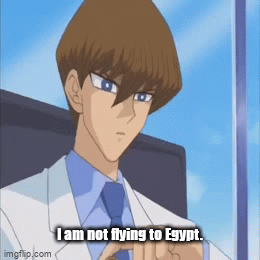
31 notes
·
View notes
Conversation
Johan: Duelling isn't everything, you know.
Judai, covering Ruby and Kuriboh's ears: Really, babe? In front of the children??
#yu-gi-oh GX#spiritshipping#incorrect quotes#judai yuki#johan anderson#winged kuriboh#ruby carbuncle#sparkle queue
94 notes
·
View notes
Photo

im watching yugioh gx for the first time ever stan winged kuriboh
#yugioh gx#ygo#jaden yuki#judai yuki#winged kuriboh#kuriboh#yu-gi-oh!#yu-gi-oh#yu-gi-oh gx#nadbov#ygo gx fanart#jaden yuki fanart#judai yuki fanart#j#yugioh gx fanart#winged kuriboh fanart#Im like on episode 40 rn!!#when i first tried watching the show back in idk february it was really difficult to get thru the first several eps bc. THEY ARE VERY BORING#but now like this shit is hilaaaaaaaaarious every episode#yugioh
389 notes
·
View notes
Photo
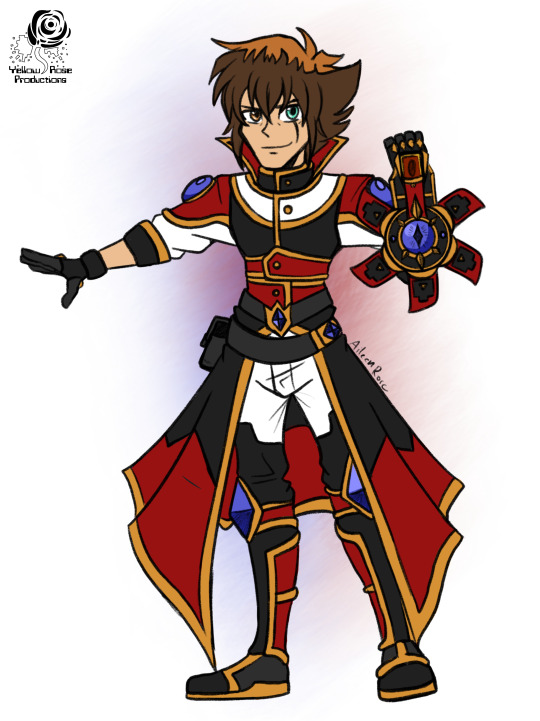
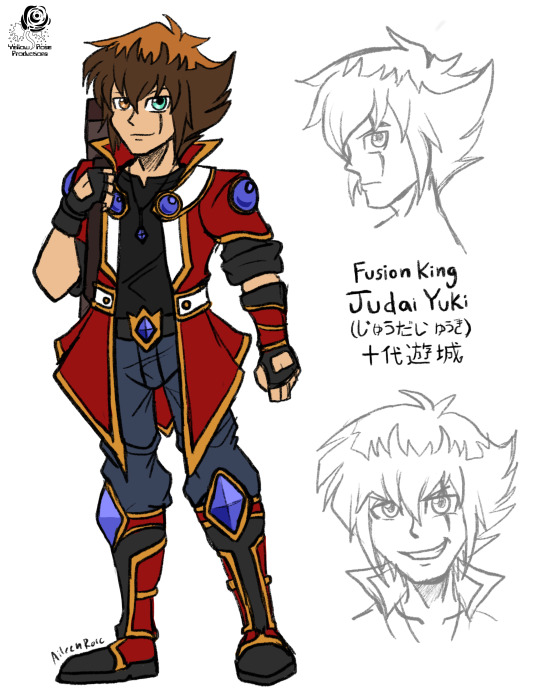
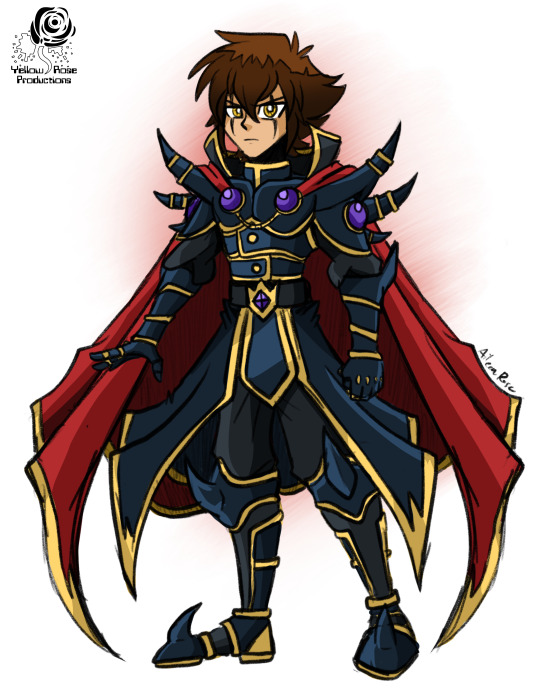
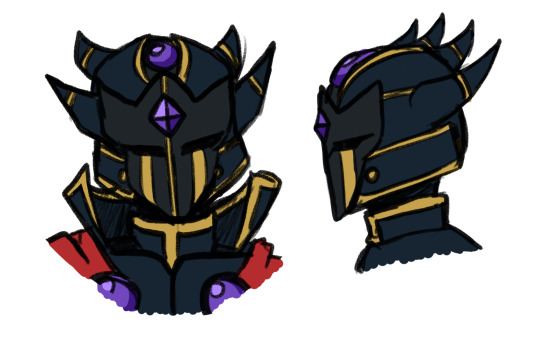

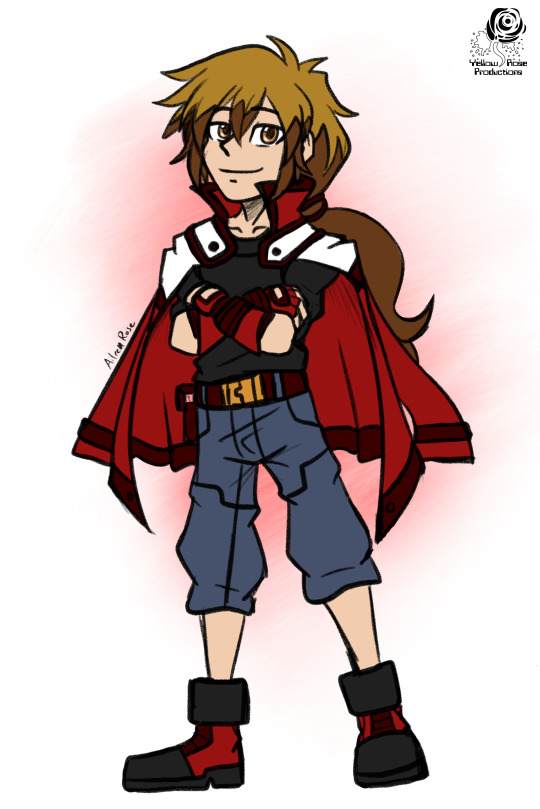
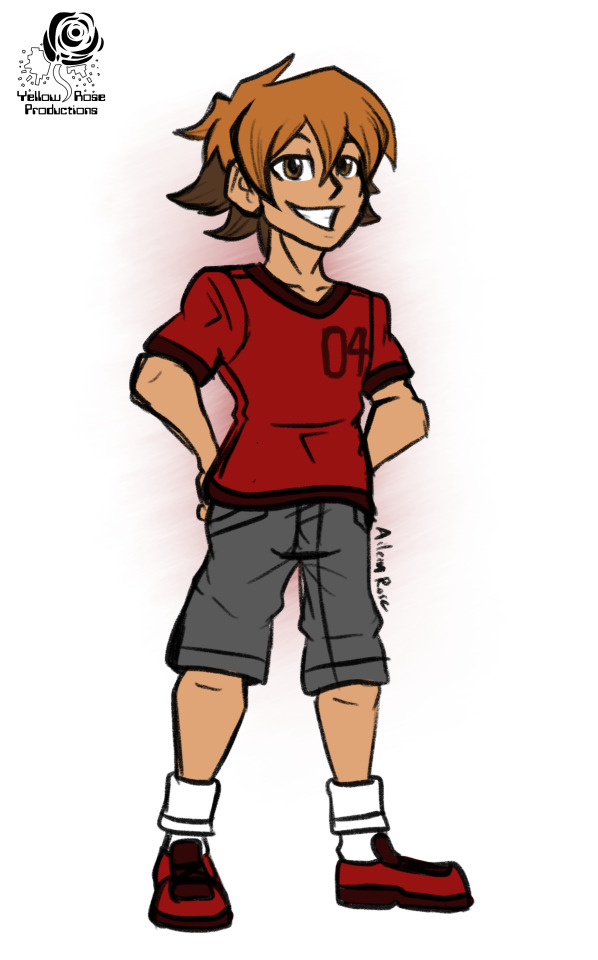

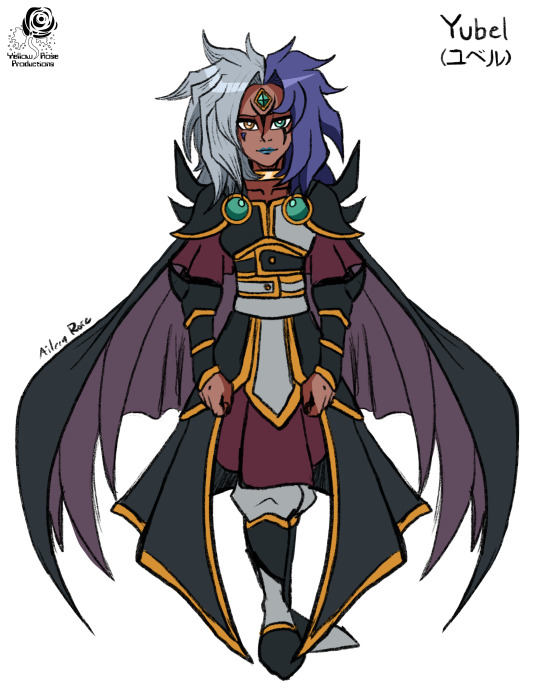

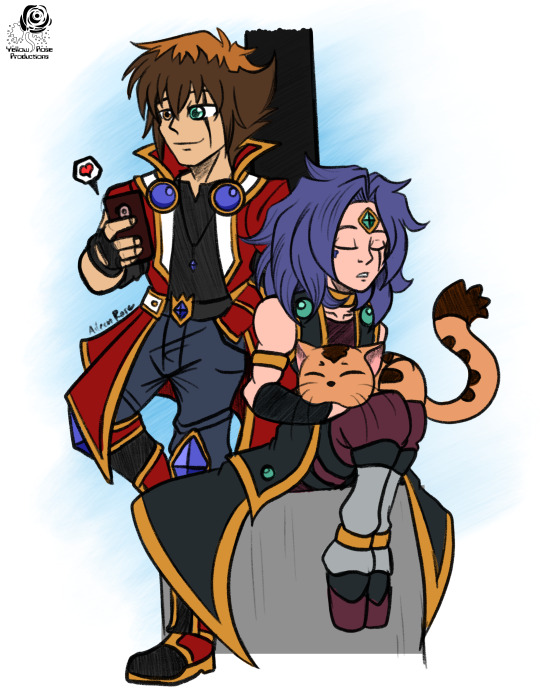


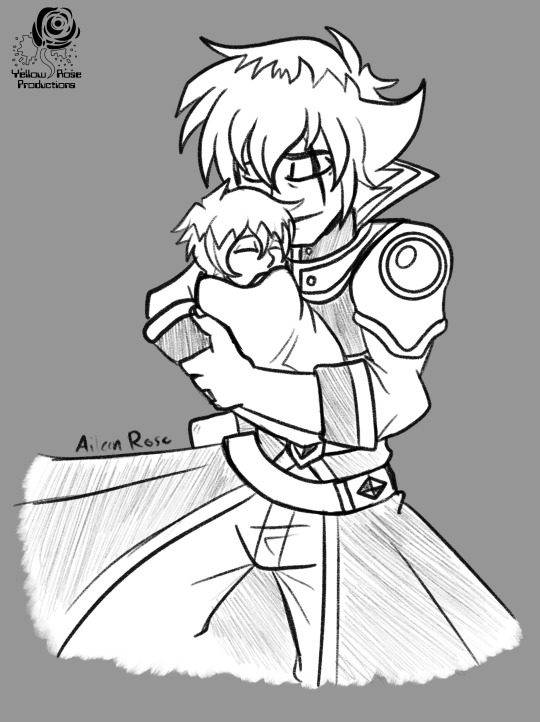
Hi and welcome to a huge backlog of sketches and concept art I’ve have on the computer for awhile that I decided to finally post in one big sketch dump.
So I have fun little thing known as Court of the King where each of the protagonists get to interact with each other through magic reasons. In this said thing, most of the protagonists have grown up and some even have families. With all this in mind, let’s get on with explaining Fusion King Judai.
Judai at this point in his life has been able to move on from what happened during the events of GX. Took a bit of soul searching and therapy but he’s a lot happier now and is content with himself. So much so, he’s now actually teaching others how to duel at his own little set up known as the Duel Lodge. A place for others like him that are Duel Spirit sensitive or are kind of out casts. All are welcome at his humble abode.
Another thing he has worked out is his relationship with Yubel. The two are pretty chill with each other and are a pretty good team now. Yubel can even shift forms now at will. Comes in handy with not scaring people off, and blending in better. Bottom line, Yubel is more chill now and only really starts to get unhinged if you try to harm Judai or his family.
Speaking of, another thing Judai has got going for him is his family. After his long journey of soul searching, Judai returned to reunite with his friends to mend some fences... and with Asuka in particular, rekindle a relationship. Which eventually bloomed into a proper romance to eventually marrying her. Leading to them have their two sons, Kichiro Yuki and Raiden Yuki.
As far as Judai is concerned, his life going pretty good for him. He went through a lot but he wouldn’t have it any other way.
And that’s basically all there is to it for Fusion King. Now as for what we see here.
Concept art for his final draft and initial draft as Fusion King. First try I wasn’t too pleased with. Felt it wasn’t really flowing all the well design wise. So tried again and well, much happier with him having a longer coat. A nice blend of Supreme King and his old school jacket. Really wanted to show how he basically came to terms with everything.
Supreme King slight redesign. Nothing major just minor tweaks. Mainly changing the helmet design and re-arranging some of the spikes. Judai can actually take this form if he wishes but it’s rare that he does.
Asuka concept art. Blend of her look from ARC-V and her GX design. She’s a teacher at the academy so gotta look the part.
We got the Yuki boys, Kichiro and Raiden. Both are adorable and precious. Kichiro has his dad’s old jacket and wears it proudly. Raiden isn’t really looking to duel, he’s more into soccer so hence the soccer get up. He’s still a good boy.
Spooky, who is Kichiro’s Duel Spirit companion. He’s a spooky moth kuribo and he wants candy!
Yubel’s different forms. As stated above Yubel has chilled out so it has allowed some new abilities to come through. Especially for not scaring the boys. (Which Yubel is uber protect of.)
Judai, Yubel and Pharaoh while they were still traveling. (Back before I redesigned Judai so we have the old design of Fusion King.)
Johan, Cho and Hayato as adults. Johan also did some traveling like Judai but has since settled down and is a pro-duelist. (He has a family of his own to tend too.) Cho and Hayato both work for Industrial Illusion. Cho making model kits of monsters and Hayato being a lead artist of duel monster cards.
Line of the Yuki family all together, ages and heights included.
And to close out, a sweet little doodle of Judai holding a baby Kichiro.
And that’s it. =D Hope you all enjoy.
Now I need to work on my other info dumps for this Court of the Kings thing.
Stay tuned.
#Court of the Kings#Fusion King#Judai Yuki#Asuka Tenjoin#Fiance Shipping#Kichiro Yuki#Raiden Yuki#Yubel#Supreme King#Johan Andersen#Cho Marufuji#Hayato Maeda#Yu-Gi-Oh GX#Yu-Gi-Oh!#YGO GX
97 notes
·
View notes
Text

Yu-Gi-Oh GX Season 2 - The Fool's Journey
This is an analysis of Yu Gi Oh Gx's season 2's use of Tarot, in regerence to the Fool's Journey, specifically in regards to our proverbial fool and favorite idiot Judai Yuki, and every other Tarot card referenced in this season. Of course, this requires coming through every season 2 episode to look at each individual card Saiou pulled from the deck or referenced so pardon me this is going to be a long one.
What is The Fool's Journey
The Fool’s Journey is a sequence of 22 cards, from 00 the fool and 21 the world. It’s meant to represent the journey of the proverbial fool, a blank slate defined by both naivete and ignorance in their personal growth. In other words the fool leaves on a journey...

...to grow from a child to an adult.
In this journey each card is symbolic for a stage, person or ecounter that the fool makes on his journey of personal growth, and the fool must weather all of them in the journey he can't skip the so-called "disaster" cards like "The Devil" or "The Tower" because part of life is coping with tragedy and loss. So the fool's journey is essentially twenty-two cards that represent different encounters, events, and people in a person's life as they grow up.
Judai is the focal character of Yu Gi Oh GX, and while other characters do matter the central focus of the anime is Judai growing from his "pure" childlike self into a fully grown, well-rounded adult.
The Tarot symbolism is most prominent in season 2, but I'd argue that much like the alchemical symbolism it permeates the whole show especially labeling Judai as the fool. Make no mistake from episode 1 on he's the fool, the very first thing he does in series is run into a magician (Yugi who's signature card is Black Magician) who gives him guidance (the second step of the Fool's Journey. I'm going to quote another post here who states it better than me.
In GX, Judai is, symbolically speaking, The Fool of the Tarot Deck, the Novice Alchemist — a person brimming with infinite potential, yet one who is also supremely ignorant, who walks forward with his eyes closed and often unknowingly causes harm in his great ignorance. In this, he is very much the embodiment of the faults we most commonly associate with teenagers — selfishness, recklessness, shallowness, a lack of dedication or empathy when it’s most needed. Like most people, he has good traits that work to balance out some of the above, but his narrative path through GX ends up being that of the flawed hero undone by his faults — and then that of the atoner, the repentant sinner. In his case, the mistakes of his teenage years are the catalyst for his growth from a boy into a man burdened with duty and purpose.
Judai is a blank slate brimming with potential like the fool, and he's also an ignorant child who doesn't look before he leaps - and there are great consequences for his ignorance. Even in Season 2, a majority of the conflict could have been avoided with the Light if Judai was on the ball, instead of ignoring his friends for weeks after they were brainwashed. Judai is more often than not someone who has to be pushed into being a hero, not someone who voluntarily walks the path and this is something that lets the villains easily manipulate him. Especially in Season 2 where the main villain Saiou's gimmick is convincing the other characters that he's in control of their fate. Someone who doesn't grab the reigns, who doesn't try to control their life will see reality as something that happens to them rather than something they make with every single decision and those people are the kind who easy fall prey to Saiou's manipulations.
It's easy to see life as entirely out of your control if you don't take control. For Judai this manifests in two seasons worth of him resisting growing up and taking responsibility. As the fool he's not wise to the world and because of that, he's often caught guard by what's happening around him and the schemes of villains until it's almost too late.
The need for Judai's growth is especially emphasized in Season 3, where his "pure" nature that he's constantly praised for in the first two seasons becomes heavily criticized as a character flaw. However, the setup is present in Season 2. The first card that Saiou pulls for Judai is the fool, specifically after all of Judai's cards have gone blank and he leaves the academy. The fool is wandering in search of something, because the Fool is missing somethig. You don't leave to go on a journey if you're content and have everything you need at home.
We'll learn in Season 3 just what it is Judai is missing (*cough* Yubel *cough*) but this begs the question if Judai actually needed to reunite with Yubel. After all for the first two seasons Judai seemed to be managing fine without Yubel. In a jungian sense, yes he did because Judai in seasons 1 and 2 had yet to go through the process of individuation. It's the process by which one achieves psychic wholeness, similar to the fool's journey it's necessary for growing up and becoming one's own self.

Judai cannot continue to remain a child, nor can he remain "pure" because pure people don't exist in this world. Judai's pureness comes from a mix of innocence and ignorance, because he's quite literally forgotten some of the darker memories of his past (like Yubel quite literally sending all of his friends into comas until everyone became scared of him) and also from a refusal to "get smarter' or "grow up" on his end. For example does all of the trouble Judai faces in Season 3 come entirely from Yubel, or does Judai also struggle because behaviors that are okay when your first year of high school and still growing become less okay in your third year?
Judai's childish and pure heart that makes him the fool is both his greatest strength and weakness, his strength because he's optimistic, open to new experiences and generally trusting of people which makes him so easy to befriend. However it's a flaw when Judai's childishness turns into childlike selfishess, when his ignorance leads to him making foolish, impulsive decisions. Judai's downright refusal to think, about other people's feelings, about the consequences of his actions leads to great suffering later down the line. After all in the art of the Rider-Waite Tarot card, the Fool is taking the first step of their journey blithefully unaware that they're about to walk right off of a cliff.
So the Fool's Journey is something Judai must complete to grow up and complete his character arc, because the fool may be innocent, and pure of heart, but they're also empty and empty things need to be filled. Each of the cards Saiou pulls this season, are representative of Judai's journey throughout season 2 and some of these are going to be characters, because some of the cards represent people the fool encounters.
Destiny
Before I start breaking down every single tarot card that Saiou pulls, I also want to go into why Destiny is such a huge theme in season 2. There's Saiou's ability to see the future, the multiple tarot cards that are refereced, Saiou's entire deck archetype being based around the major arcana with "Arcana Force" monsters, Edo's obsession with Destiny, the "D-Heroes" or Destiny Hero Archetype that Edo plays which work around the concept of effects that manipulate time (such as sending a card two turns into the future, or flipping over a spell card on your deck to use next turn.)
This season isn't just a typical "there's no such thing as destiny, you can change your fate if you want to" story, because of the way it uses tarot symbolism / Jungian Symbolism. Basically the whole theme of Season 2 (and the leadup to Season 3) boils down to this quote.
“Until you make the unconscious conscious, it will rule your life and you will call it Fate.”
CG JUNG
The biggest example of this is Edo, who is also someone who desperately wants to believe in destiny, and that he's a person chosen for a great destiny at the beginning of the season.
Edo’s obsession with destiny comes from not wanting to confront his past and his inner wounded child. If he believes he’s a chosen hero on a quest for revenge, he doesn’t have to confront what DD pointed out that he’s still the grieving child who lost his father.
Since Edo ignores the unconscious, he is for most of the story a pawn in some way or another. He’s a pawn to Saio believing and following his prophecies, he’s a pawn to DD who killed his father never once suspecting him.
Characters who ignore the unconscious, become pawns of Saiou / the Light. What this basically means is that if you are not aware of a flaw you have, you'll be sabotaged by it in some way. Problems don't usually go away by ignoring them after all as nice as that would be. In Jungian symbolism the shadow is made up of the flaws that you would rather ignore or not confront, and all other parts of the personality that you're not aware of. Confronting the shadow is necessary for individuation which is the same goal as the Fool's Journey. Saiou's strategy is to duel someone, exploit some subconscious flaw, Manjoume's inferiority complex towards Judai, The pressure Asuka feels to conform, Misawa's desire for validation and praise from his peers. Once he's exploited that flaw he brainwashes them with the light, because while being controlled they don't have to think about that flaw. Since they don't want to confront their flaw / shadow and it's easier to just keep o ignoring it then they become pawns to destiny.
Now, for the breakdown of every card that Saiou references this season.
53: Destiny Begins The Freshman Edo Phoenix
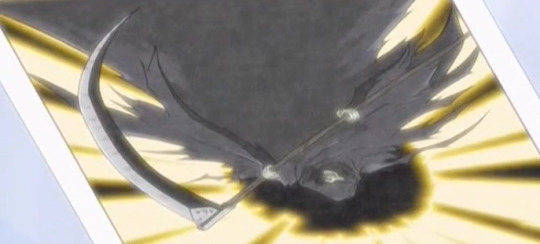
Pull #1: Death in Reverse
XII - Death I am Wary
Death doesn't mean literla death, but rather change. Dath means change. Death means change. Death means change. Means change.
However, Saiou pulls Death from the deck inverted. You have to have death to have rebirth. If it's inverted then it's stagnancy. It's refusing to acknowledge change, or in some cases it's refusing to grieve and because of that you're unable to move on or move forward.
The situation that Saiou pulls this in is during the middle of Edo's duel with Judai. A duel that Saiou set up, and then told Edo to lose, which Edo obeys because up until a certain point he's always done what Saiou's deck told him to do - because of his firm belief in destiny.
Death in reverse in this case is Edo - because his desire to belief in destiny comes from his refusal to grieve or move on from his father's death. If he believes that everything is predetermined and he's a chosen one, then he's not some sad orphaned kid, he's a hero with a great destiny ahead of him.

Edo is the one refusing to acknowledge death, and refusing to grieve, and therefore he's the one who is stagnating at the start of the story.
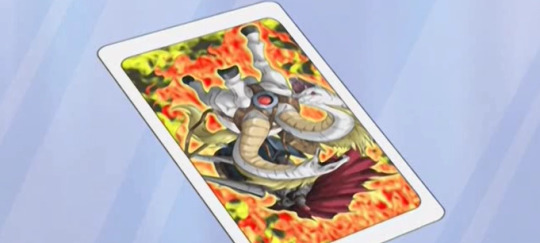
Pull #2: Chariot in Reverse
VII - The Chariot I am Driving
The chariot is the card of ambition, action, energy and most of all control. In the rider waite tarot the image is of a hero riding the chariot. However, in reverse it means a hesitation to grab onto the reigns and take control of your life.
This is once again in reference to Edo, who because of his belief in destiny leaves all the decision making up to Saiou. Edo who would normally be a very strong, ambitious, willfull individual is easily manipulated by Saiou because he refuses to take the reigns into his own hands.
The chariot in reverse can also sometimes mean chaos, as in someone who refuses to take control of his life in an "I do what I want" sort of way. In that case it could be referring to Judai, especially the way Judai's extremely self-centered egotism, only dueling for fun compares to how Edo who is always carrying massive burdens on his shoulders and believes a hero has to carry such things (in spire of the fact that Edo is essentially still a child, just a child playing at being an adult). Saiou says that a encounter with Judai is necessary for Edo's growth and that's true, because Edo just like Judai is still a child, but Judai's aware of that fact whereas Edo thinks he's an adult when he's not. Sometimes the first step to growth is taking a good long look in the mirror.
57: The Kaiser vs. Ed

Pull #1: The Chariot - Upright
I already elaborated on the Chariot's meaning above - but it's upright this time. There's an interesting line where Edo says he was going to win his first duel with Judai until Saiou ordered him to lose. Which implies that it's not destiny at play here, but rather Edo's belief in destiny which influences his choices.
The Chariot could also be a reference to Hell Kaiser Ryo. As the sense of loss and powerlessness in this episode that Kaiser experiences humiliates him enough that he has a full breakdown and becomes obsessed with achieving victory above everything else - much like the triumphant hero holding the reigns of the chariot.
Unlike other characters who fall prey to possession (Fubuki, Asuka, Manjoume, etc...) Ryo repeatedly emphasizes that he's not being possessed by darkness internal or otherwise, his apparent change in behavior is the result of his own decisions. Ryou for all of his flaws is much more of an adult than Edo who's being controlled for more than half of the season because of his belief than destiny, he takes responsibility for his own choices when others like Fubuki try to make excuses for him.

In that sense he embodies the chariot much more than Edo as it's the card of having both hands on the wheel. Though once again the chariot in reverse is the perfect card for Edo, because Saiou's trick is convincing people they're not in control of their destiny which is when he starts making all of your choices for you.
61 - Enter Saiou the Tarot Deck of Destiny
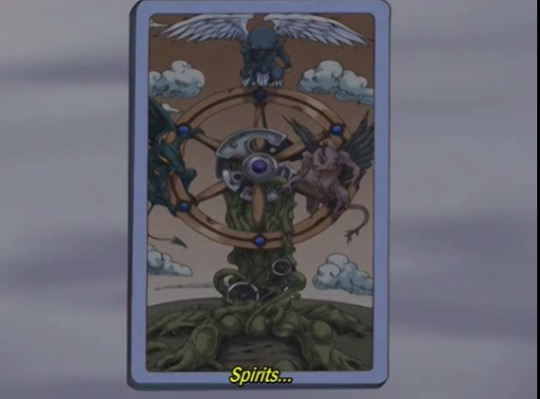
He is a duelist who is able to communicate deeply with Duel Spirits - or so my divinations tell me.
X - Wheel of Fortune: I am changing
Saiou pulls this card after Judai's deck has been bleached, when he's standing on the precipice to leave Duel Academy where he'll later have an encounter with the Neo-Spacians. He doesn't name the card, but it's clearly the Wheel of Fortune, he later pulled the card in association with Edo when he believed Edo was the one who could change his eventual fate.
Here Saiou pulls the card while ruminating on Judai's connection to the spirits. In context he believes the spirits are what's protecting him from the fool as pictured above. I went into great detail for how the fool represents Judai so let's skip that to stop from repeating myself and focus on the Wheel of Fortune.
The wheel of fortune is chaotic chance by the ordained power of gods and the celestial heavens/earth. It's also a card heavily associated with Alchemy.
“The Waite-Smith Wheel of Fortune is fourfold in construction, signaling all that is known in the world of matter: directions, elements, Kabbalistic worlds, fixed signs of the zodiac, etc. Spaced around the wheel’s rim is the divine name, , counterchanged with English letters. Most will instantly pick up the word TARO(T)—sometimes called the “book of fate.” But you might also see ROTA (“wheel”), ORAT (“speaks”), TORA (the law or “Torah”), and ATOR (“Hathor”). Alchemical glyphs adorn the axes of the circle. At the top, mercury’s symbol; at left, the salt symbol; at right, the sulfur symbol. These three are the tria prima of alchemy. The glyph at the bottom, though it resembles the Aquarius glyph, is more likely the alchemical sign for multiplication, a process by which the alchemical product becomes more voluminous. Or the four symbols may be elemental: mercury/air, sulfur/fire, salt/earth, wavy final glyph/water. Atop the Wheel is the enigmatic sphinx. Modern tarot scholars consider the yellow descending serpent to be monstrous Typhon and the red “devil” figure to be jackal-headed psychopomp Hermanubis. The Kerubic beasts from Ezekiel 10 occupy the card’s four corners; their books may be the Gospels: Lion[…]”
Excerpt From Tarot Deciphered T. Susan Chang
The connection to divine aspect in this context is Judai's connection to the spirits. However, pulling the Fool right afterwards is interesting because it's the card of ignorance. Judai doesn't know why he's connected to the spirits because he's forgotten, both his childhood connection to Yubel and the fact he could see spirits long ago. This is a plot point that's foreshadowed three times, first Judai telling a scary story to his dormmates of when he used to hear spirits in his childhood, then in season 2 when he suddenly remembers entering the Kaiba Corp contest for the Neo-Spacians, that's only half the story though as in season 3 Judai begins to question when he first saw spirits until he finally remembers Yubel and sending them away on another satellite.
The last card he pulls is the hanged man which is a card tied directly to Manjoume. Manjoume is Judai's foil in a sense. Saiou even uses Manjuoume as a replacement head of the cult something he originally planned for Judai. Manjoume also primarily wears black, a color associated with Nigredo. Nigredo is the first stage of alchemy the where most of the impurities are boiled out until the alchemical mixture turns pitch black. Manjoume similiarly, is a character who carries around an inferiority complex and constantly battles with his low self-worth and the pressure to succeed unlike Judai who spends the first two seasons repressing all those feelings.
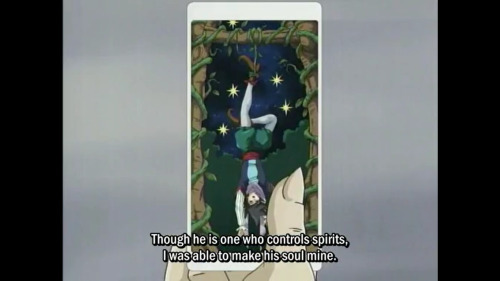

XII - The Hanged Man I am releasing.
Some people argue that Manjoume has no character arc past season 1, but I'd argue being the villain exploiting you with your worst insecurities and flaws is impressive character work because we learn a great deal about Manjoume here.
The hanged man is the card of surrender to outside forces, the card of taking time to contemplate, and also the card of self-proclaimed martyrdom.
There is more than one religion that speaks of a man hanged from a tree. Mithras in roman mythology, Odin from Norse, Jesus in Christianity, and Osiris from Egypt. This card is often interpreted as a representative of martyrdom - the more accurate word other than a martyr is sacrifice.
One of my friends recently shared this with me: "Remember that surrender is an act of will. It is a choice to unclench one's fist and hang oneself upside down and stay there."
Kitchen Table Tarot
The use of the word "Sacrifice" is ironic here, because Manjoume is basically used as a human sacrifice to become a vessel of the Light of Destruction.
Using the Hanged Man as the Self-Made Martyr is meaningful here too, because Kenzan proves that losing a duel to Saiou doesn't automatically result in brainwashing. My theory on what makes others fall prey to the light's influence is when they accept Saiou's words about their inner desires, essentially falling prey to their insecurities. The light is a relief in a way to those riddled by insecurities they don't have to to think about the things that worry them if they're brainwashed. If you think about it, Manjoume is exploited for his inferiority complex, Asuka is forced to conform into a more feminine role, and Misawa joins a cult to get validation from his peers after they start ignoring him.
The Hanged Man is all about the choice to hang oneself, and while Saiou is incredibly forceful including using the surrounding plant life to hang Manjoume the card ultimately implies it was Manjoume's choice ultimately because he kept judging himself on his ability to beat Judai instead of just looking at his own merits.
You have a rival that you wish to surpass. However, deep within your heart you have all but surrendered. That's not all, you even entice him with friendship in order to prolong your battle.
Yes stagnation stemming from a failure to defeat Judai. You cannot continue like this. That said, you happened to pull he who hung in reverse. This foretells progress from stangation.
The choice to stop believing in his own cards and accept the cards that Saiou gave him was ultimately his own in that moment. As evidenced by the fact that Manjoume is able to throw off his own brainwashing later on and take the Ojamas back.
In the duel itself the hanged man arcana force card lands in reverse, and the meaning is exactly as Saiou states it, stagnation, but a stagnation you have to make the decision to pull yourself out of. "That said you happened to pull he who was hung in reverse. This foretells progress from stagnation. Yes - one can choose their destiny."
Of course the irony here is Manjoume's not really making the choice to escape stagnation here, because he's accepting Saiou's will over his own.
62 - A New E-Hero Neos!
This time a card falls out of Saiou's deck, which is something that happens in real life all the time actually when I'm doing readings. Which is a fun little detail the creators threw in. The card itself is death, it falls in a diagonal position ambiguous to whether or not it's upright or reverse which Saiou terms "rebirth if reversed, destruction if upright."
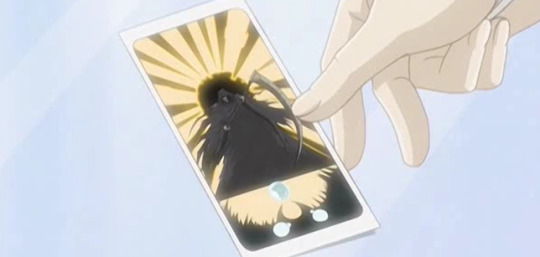
XIII - Death "I am Weary"
Saiou's reading of the card is a little weird. Death in Tarot is the card of Death and Rebirth in the sense of change. Destruction is more in the wheelhouse of the Tower.
Of course his reading could be referring to the necessity of letting things die, in order for change to occur, whether they be old ways, old ideas, etc. Death in reverse isn't rebirth though, but rather stagnancy and the resistance of destruction.
The definition of Death here does fit with the alchemy symbolism surrounding Judai's character. The main philosophy of alchemy is "Dissolve et Coagula" which basically means death and rebirth. A person is dissolved and reformed into a purer metal until eventually alchemical gold is formed. Judai is in fact a character that has been resisting death, because he spends basically two seasons a stagnant character and his immaturity as a result of his lack of growth is a big focus of season 3.
In the Fool's Journey the death tarot card is all about accepting both grief and death as inevitable facts of life.
The Fool now begins to eliminate old habits and tired approaches. He cuts out nonessentials because he appreciates the basics of life. He goes through endings as he puts the outgrown aspects of his life behind him. He process may seem like dying because it is the death (13) of his familiar self to allow for the growth of a new one.
Learntarot.com
Clinging to the familiar self is definitely a way to describe Judai. One of his biggest flaws is his tendency to settle into a comfortable status quo and take things for granted. Hence why he takes so long to try to save his friends from brainwashing in this season.
"It is the ego that sees itself as separate from life; because it is only a mask the ego does not wish to die. It wishes to make itself superior to the universe. If we accept death we will be able to live more fully. The ego never wants to release energy, it wants to hoard it more fully, as a result new energy cannot get in. "
Seventy-Eight Degrees of Wisdom: A book of Tarot
Jung even defines death of the ego as something necessary for growth. In The Archetypes and the Collective Unconscious (1959; 2nd ed., 1968), Jung characterized ego death (which he referred to as “psychic death”) as a fundamental reordering of the psyche with the liberating potential to reset human consciousness so that it might better align with the “natural” self.
Which you know season 3 foreshadowing again, Judai accepts death in himself in quite a literal sense as the end of the season he dies and is reborn as a new being entirely.
I'm probably reading too much into it, but it's pretty clear Yubel was the plan at this point, considering both the season 1 Judai seeing spirits in his childhood, and the launching trading cards into space are both things that get added into Yubel's eventual backstory.
70 - Asuka Vs Manjoume White Thunder

The upright Hierophant! It refers to someone who will be of use. Could this mean that it is Judai Yuki and not Edo Phoenix that I need?
V - The Hierophant I am unlocking
In this scene Saiou directly states the card could be referring to either Edo or Judai. Sorry Asuka no card for you this episode (if I had to assign her a card it would be the high priestess passive, feminine inspiration who appears after the Magician she is basically the first friend Judai makes and one of his first duels when he comes to Duel Academy). The hierophant is also the masculine counterpart to the high priestess so that's more evidence for Asuka being subtly marked as the high priestess.
Saiou first pulled the Hierophant in the past shortly after meeting Edo, to show Edo his belief that Edo can be the one to change the terrible future he's predicted for himself.
The hierophant sits between two pillars wearing three robes - red blue, and white - and a three-tiered crown, both erepresenting the three worlds over which he rules (the ego, the id, and the supergo). In his left hand he holds the Papl Cross. He raises his right hand in a blessing, with one two fingers pointed to the Heavens and two to Earth. This represents the connction between man and the divine. While the crossed keys at the Hierophants feet represent the balance between the conscious and subconscious minds. Overall it's a card for a figure that appears and offers you guidance.
A card that is appropriate for Saiou who's conscious and subconscious minds are completely out of whack. The state of Saiou's possession is left a little bit ambiguous in the text. Saiou claims he's completely controlled by the Light of Desstruction, split into two entirely seperate halfs ala Marik and Dark Marik. His good half does in fact go to Edo and help him in the duel. However, the Light of Destruction claims that he is Saiou, and he's enacting Saiou's vengeance against a world that shunned and feared him for his powers. However, either way the fact that Saiou has divided himself into two distinct halves shows a serious imbalance in his conscious and subconscious he wishes Edo to help him fix.
Before the Hierophant kneels two followers. The hierophant's role is to pass down spiritual wisdom. That's likely the Judai part of the card.
I read something that likened the Hierophant to trickster gods. What's this? Coyote, Hermes, Fox, Loki - they take information that we can't quite wrap our heads around and make it discernible. The Trickster is the messenger between the gods and Man. Stealing fire, teaching us forbiddensecrets, giving us an apple. Joseph Sober called the Hierophant "He who shows the Sacred" in The Book of Oracles, or A Poet's Tarot.
If the Hierophant is linked to trickster gods as well then that's the Fool / Judai's role, also as the character who acts as the messenger between spirits and humans which is Judai's role as Edo can't see spirits. Linking both Judai and Edo to this card also foreshadows Judai's eventual role as someone who becomes a guide to help Duel Spirits and Humans coexist.
Judai is also much like Edo, someone who's conscious and subconscious minds are completely out of whack. All of Season 3 is a balancing act for the 3 parts of Judai's soul, Judai (Ego), Supreme King (Id) and Yubel (Superego). The entire duel between Edo and Saiou is basically setup for what Judai must do at the end of Season 3 when facing Yubel when it's time to find balance in his soul (and Yubel is definitely his soul).
Judai is the guide between spirits and humans, but he's still in the process of learning how to guide others something that takes him about four seasons because Judai is a slow learner.
73 - Kenzan VS Saiou! It's Dinosaur DNA, Don
Saiou starts the episode with a four card spread, card one wheel of fortune, card two the fool, card three the hierophant three cards we've already covered and four is The Strength which refers to Kenzan.
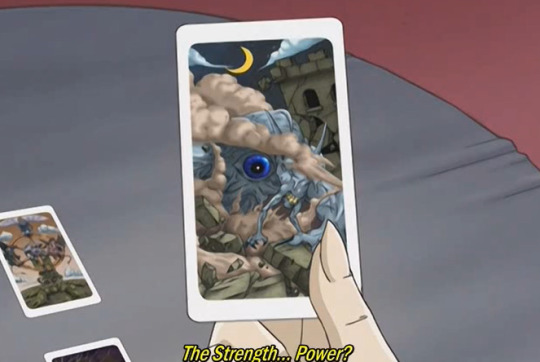
And what is this card that accompanies the Fool? The Strength... Power? A symbol of unwavering Power. Do I take this to mean this one might also affect my fate?
VII - The Strength I am graceful.
That sure is interesting card art for the Strength. For the most part Saiou's cards resemble the Rider Waite decks, a religious leader for the hierophant, a fool for the fool, a figure on a chariot pulled by a two-headed figure (as opposed to two lions), Death shows a figure of Death (in Rider-Waite it's the pale horseman but in other decks it's just the reaper himself) but the Strength Card is traditionally a woman in a white dress taming a lion. The white dress is purity, the infinity symbol atop her head an endless supply of strength, and the act of taming the lion itself is feminine energy controlling the lion a symbol of untamed beastly power. Saiou's card art looks like some sort of alien crawling out of the earth with a crumbling tower and the moon in the background.
It's most likely just a reference to Saiou's alien-like / eldtrich inspired Arcana Force cards, which mixes the major arcana with lovecraftian lore to reference the alien nature of the Light of Destruction as an unknowable force from outerspace tampering with earth. Since the Strength is about taming beastly power, the representative of powr isn't a lion, but rather an alien like the strange Alien force Saiou gets his power from - which makes sense as Kenzan is the first character we're shown able to conquer the light on his own.
As I stated above it's ambiguous whether the light is straight up mind control, or just a corruption. Saiou seems to be possessed as in there is an alien force in his body controlling his body like a puppet, but the Light itself claims some part of Saiou too wants destruction. It's different then the way Yubel possesses people, which is just quite literally using their body as a puppet. Johan isn't even inside of his body when Yubel possesses him he gets shoved into a card, Yubel / Johan isn't a reflection of any of Johan's desires or internal darkness. Yubel themselves are referred to as being corrupted by the light, but they're clearly not possessed their actions are their own no matter how twisted they may be. In that case the Light is more mental damage that comes from enduring painful torture for years on end.
In Duel Links, Yubel has an encounter with Saiou where Saiou detects the light's influence on Yubel and asks them to join in his mission only for Yubel to turn them down.
Saiou: Let us fill the universe with light together.
Yubel: No.
Saiou: What?
Yubel: I don't care about the light. I don't care about you. I only care about Judai.
Which is evidence that the Light doesn't fully possess you so much as corrupt what's already there, Yubel already had an unhealthy fixation on Judai before this and the Light made it so Yubel and Judai were the only two people in the universe that mattered in Yubel's eyes.
The point of this long tangent is that this episode shows once again that people can resist the light. As Kenzan is the first person to successfully do it, he shows that losing a duel =/= possession. Misawa wasn't even going to lose his duel, the pressure to conform and join the cult with everyone else because he wanted to be recognized by his peers just made him lose on purpose.
The Light and season 2 as a whole is a reference to the Albedo or the Whitening phase of alchemy, the second stage where the metal has been cleansed of all impurities. Similiarly, the Light seems to work by promising to cleanse the characters who fall victims to it of their impure thoughts, ie their insecurities because while being brainwashed for the whole season more or less the characters brainwashed are succumbing to flaws that are a part of their arcs for the entire show.
Manjoume is constantly battling against his inferiority complex, which is both a springboard that motivates him to get stronger but also sabotages any self confidence he might build up for himself. Asuka is continually fighting the constant pressure of Duel Academy and sometimes even the people around her like Fubuki, telling her to conform to more a more feminine ideal, the conflict between perceived obligation to fill others expectations vs. doing what you want in life. Even Manjoume and Asuka's duel is Manjoume basically brainwashing her because his subconscious romantic feelings and longing towards her makes him want to brainwash her to being his queen at his sides -> forcing her to conform to femininity when previously she responded to his feelings by telling him she didn't have room for love in her life because her first love was dueling. Misawa presents himself as an island who only cares about dueling and intellectual pursuits, but both Tanya and the Light reveal how much he needs love in his life.
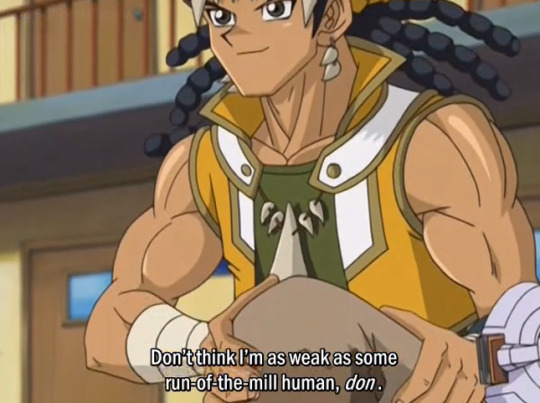
When Kenzan resists the light's brainwashing he claims it's because of his dinosaur DNA, but it's more than likely Kenzan himself - his upbeat nature means he doesn't have the same insecurities that Alexis, Manjoume and Misawa have. In season 3 when he's used as a part of the sacrifice ritual to create super polymerization he even says that he's never felt such strong hatred before. Not to say Kenzan's without flaws, he idolizes Judai way too much, but he's also achieved a peace with himself other characters haven't b/c he's tamed his wild side.
You could also tie Jim Crocodile Cook in Season 3 to the strength, because he's heavy foils with Kenzan, Kenzan uses dinosaurs and Jim uses fossils, they're both tied to earth, they both are good-natured guys who value friendship and loyalty above else. Jim also plays a big role in taming the beast when it comes to the fight against the Supreme King / Haou and Judai's inner darkness. Since the Shadow in a Jungian sense is composed of all the hidden parts of our personality, including the beastial instincts that are suppressed by the ego. Jim and Kenzan by embodying the strength card, display find a balance between the ego and the shadow that other characters lack.
The fact that Jim and Kenzan also both conquer this darkness / light respectively shows that in the end it is the character's choice to succumb. Judai when succumbing to the supreme king is SHADOW POSSESSED which is a Jungian term where unaware of our worst flaws we become essentially possessed by them and unknowingly keep committing the same mistakes.
As stated above until you make the unconscious conscious it will rule your life and you will call it fate. The same mistake every character who falls victim to Saiou makes, believing fate is something that happens to them because he called a few coin flips right in a duel rather than something they create with every single decision they make.
Supreme King Judai snaps and decides that nothing else matters except for power and that if he already lost four friends to it he might as well finish Super Polymerization. He's not being puppeteered or controlled though, Judai is falling prey to his worst instincts but it's still Judai making the decisions here. Which is the same for characters possessed by the Light, ultimately Manjoume, Alexis and Misawa have to throw off the shackles themselves. Which makes these possessions part of an arc and not just the characters being reduced to agenciless puppets for half a season (no that's the zombie thing in the third season.)
They key to doing this is embracing your wild instincts / your shadow and taming them rather than trying to repress them entirely. For Manjoume it's throwing his black coat back on and embracing the fact that he's a messy person full of pride and flaws (which is color symbolism b/c the black coat is Nigredo, but also just funny because he doesn't wash his coat), for Asuka it's embracing the fact that she doesn't fit the ideal of queen of obelisk or the stereotypical unemotional ice queen because she has too many fiery emotions (elemental symbolism and color symbolism). The light tries to rid you of your shadow, but you actually need your shadow to be a whole person b/c all those niggling little flaws are a part of who you are.
97 - He Appears! The Mysterious World Champ

"He's actually searching for his father. I understand how he feels. Every man sees his father as someone to surpass eventually. However, Ed had his father taken from him by a murderer. If he wants to surpass his late father, he will have to defeat that crimminal. That's what he believes. That's why he searches so fervently for an opponent to surpass in his father's place."
There's no tarot card pulled in this episode, but these two episodes take a right turn from Jung Territory right into FreudVille with the insanely oedipal speech the principal gives about Edo's relationship with his father.
Oedipus Rex is a play about many things, chiefly family ties and fate. Oedipus hears a prophecy about killing his father and bedding his mother, so in horror he leaves his home. On the highway to thebes he gets in an argument with a man and kills him on the side of the road. Then in Thebes he solves the Sphinx's riddle and is proclaimed a hero and a king for saving the city. He marries the recetnly widowed queen and has several children with her.
Years later a plague falls upon the city. He summons the prophet Tiresias to tell him who's behind the plague, and Tiresias the blind prophet tells him that he doesn't want to know the truth. Oedipus eventually discovers that he was adopted. That his birth parents heard the same prophecy that he would kill one and bed the other, and decided to leave him on a cliff to die - only for him to be saved. The man Oedipus killed on the side of the road was Laius, the former king and his father, and his wife Jocasta is actually his mother.
Oedipus is revealed to be the culprit of the plague in Thebes all along, because he unknowingly killed his father and bed his mother. Ironically, it's also Oedipus's attempts to defy his fate that lead him to committing the sin he was prophesized to do. Oedipus believes himself to be the hero trying to solve the plague in Thebes only to learn he's the very cause of the plague.
Freud believed Oedipus Rex to be a play that speaks to a fundamental truth of the human subconscious, and named the Oedipus Complex after the play. The Oedipus Complex is a Freudian Term that states a boy develops an unconscious infatuation towards his mother and simultaneously fears his father to be a rival.
Edo doesn't even have a mother so the incestuous interpretation doesn't really apply here. Freud can be interpreted another way though, basically the first relationship we ever experience is with our parents, and the relationship we have with our parents teaches us about all other relationships in life (google attachment styles / theory this is a well studied phenomenon).
The principal takes the heavily Freudian interpretation that Edo can't grow up because due to the fact that his father died early, he never surpassed his father as young boy's due. Edo is still stuck in this stage of immaturity where he views his father as a rival because his father was taken from him too early.
Edo also symbolically kills both his father and his adoptive father in defeating DD and killing the remains of his father's soul that was in Destiny Hero Blood-D! in order to finally grow up. Symbolically he's killing his father like Oedipus, but in actuality what he's doing is choosing to let go of the feelings of the past that controlled him for so long and move on. In order to grow up you have to symbolically kill your parents, or at least in childhood your parents have control of every aspect of your life and seem all knowing and part of growing up is separating from your parents, taking control of your life and making your own decision.
Edo is more closely tied to the fate aspect of Oedipus Rex, in the sense that Edo believes himself to be the hero of the story that is center to the narrative but is blinded to the truth all along. He is even at parts the villain of the story, because for so long he helps Saiou's machinations by willingly choosing to be his puppet because he wants to believe he's a chosen, destined hero so badly.
Much like Oedipus, Edo (oh my god... is that why he's named Edo) spends his entire arc searching for the culprit when the culprit has been right next to him all along. He even gets used as a part of the culprit's plan, because DD encouraged Edo to search for the person who stole Bloo-D in order to spy on the police investigation and make sure Edo didn't get close. Edo, like Oedipus believes himself to be the hero of the story.
But maybe, being chosen by fate isn't a good thing. Oedipus technically is a hero, but he's the hero of a tragedy. He's chosen by fate, but that fate means he's ultimately helpless and agenciless destined to commit a horrible disgusting act he doesn't want to do. All of his attempts to avert his fate and exert his free will just end up with him fulfilling that horrible fate instead.
Edo wants to believe in destiny because of his childish belief in heroes, and his need for heroes to exist because his father's killer went unpunished. He also copes with the reality of his father's death by creating a fictional narrative, he was the hero, his father's death is his tragic backstory, and one day he'll avenge his father and get revenge because that's how stories go. Once again though to be a character in a story is to have no agency, because characters don't have control the authors do. Characters are just tools of the narrative, just like how Edo spends so much of his arc a tool of Saiou, and DD.
When DD is justifying himself and his actions in killing Edo's father he sounds a lot like Edo, proclaiming himself one of the chosen ones.
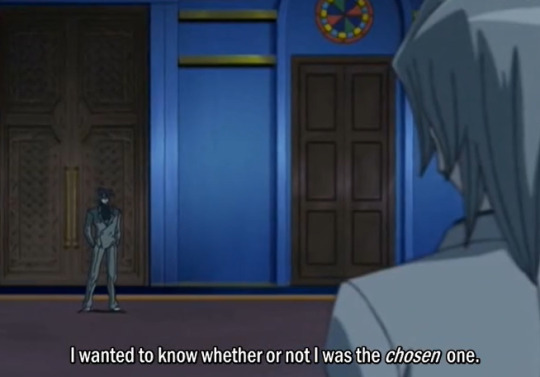
DD:Self-interest? Not quite. I wanted to know whether or not I was the chosen one. Just look at history - all the greats who seized power would always commit some number of crimes. In killing your father, I became a great myself and I proved my status as the chosen one.
Edo: You've lost your mind!
DD: Edo, I wouldn't expect a commoner like you to understand. The path of a great is a unique one, after all - one devoid of laws and common sense.
DD's logic is a reflection of Ed's, and also Saiou's, as all three of them believe themselves to be chosen by a special destiny, and in all 3 cases it's actually a terrible thing to be a chosen one. DD is even split down the middle just like Saiou, and it's implied for all the victories Bloo-D brought him he might just be possessed by that card, an angenciless tool just like Saiou is to the light.
In Season 4 Saiou even succumbs to his flaws and turns against Judai because he can't stand to be powerless, and getting his powers to see the future back is in his eyes worth the possession it might bring too. All three of these characters want to believe in a fixed destiny because it makes them special, but by believing in fate they also give up their ability to make choices and become tools. Until you make the unconscious conscious, it will ruin your life and you will call it fate.
Even Saiou's narrative of gaining revenge for his father turns out to be unsatisfying in the end, after his long quest for revenge all he accomplishes is finding out his adoptive father never once cared for him all along, and he has to kill the last living memory of his real father. The revenge that he thought would bring him closure just rips the wound right back open. His narrative is proven false and Edo is shown not to be a hero as he imagined himself, but just a child who's failed to grow up, or grow past the day his father was killed.
100 - The Ultimate Arcana, The World
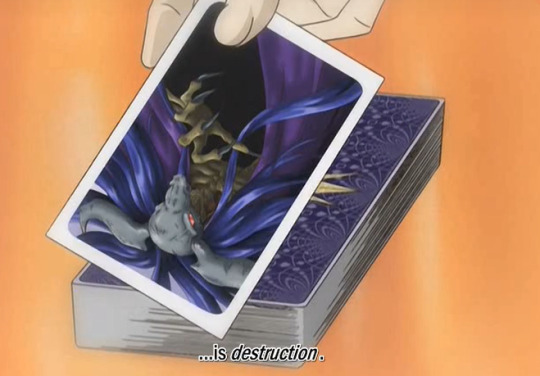
I've foreseen what my future will bring - my fate. THe sign that I've derived is destruction. The upright Devil card. Crime, injustice, temptation, restraint.... It implies them all.
XV - The Devil I am choosing.
Saiou pulls The Devil in a flashback in reference to himself and his future, right after pulling Hierophant in reference to Edo and his role in Saiou's future. We went over the Hierophant above so I'm just going to focus on the Devil.
Saiou's reading of the Devil is pretty much dead on, however, he leaves off a critical part that the man and woman who are chained to the devil in the Rider Waite card have loose chains around their necks that they could take off at any time. The Devil is the card of chaining yourself to your own worst habits.
Do you see how people are chained to this throne? Those are pretty thick chains and look fairly sturdy. Look at their necks, they could slip off at any time but they’re choosing not to. That’s what this is about. Who could create a better hell for us than ourselves? Who knows our weaknesses? Who knows how to make us feel low and dirty and worthless? Who is ready to exploit these
vulnerabilities and hurt us at a moment’s notice?
Yep. Ourselves.
We don’t always chain ourselves without help, peer pressure, poor guidance from parents, but whatever your path is - at some point you have a choice to make. Do I wear this chain or not? Do I drink to excess? Do I hurt someone just because I can?
This card is about chaining yourself to those things that pull you down. Why do we do things to ourselves? When does it become okay to verbally and emotionally abuse ourselves? I think it comes down to two things, fear and doubt. Fear that we’re not as good as everyone else, and the doubt that allows that fear to trickle in.
-Kitchen Table Tarot
It's almost characteristic of Saiou to leave out the part where the Devil is the card of chaining yourself down, because Saiou doesn't believe he has any freedom or choice in choosing his future. He paints himself as the helpless victim of fate, and that makes it easier for the Light of Destruction to control him. As I said before it's left really ambiguous if Saiou is 100% possessed or just corrupted like Yubel, but the Light of Destruction makes the case that on some subconscious level Saiou wants to lash out against the world for excluding him.

Saiou almost exhibits a learned helplessness in regards to his own fate. He doesn't fight back because the light has him totally convinced that he can't fight back. The light also tries to convince Saiou that his destructive impulses are Saiou's own destructive impulses. Unlike Yubel it's less clear - like Yubel is clearly painted as being in control, all of the schemes are Yubel's own designs, Yubel's feelings for Judai are so strong even the Light can't sway them.
Saiou is a mix between being corrupted by teh eldtrich madnezz and just having a powerful dark side ala Dark Marik that takes total control. In favor of the Eldtrich explanation we have the clear lovecraftian inspiration in Saiou, the Light of Destruction, and his deck the Arcana Force. Most particularly the Light is a clear reference to the Color Out of Space.
The color out of space is a short story where a meteorite crashes into a farm owned by Nahum. As a result of the meteor the crops grow large and abundant but are inedible. Thewell water all goes bad. The livestock start to mutate and die off, and their meat is inebile. One of his sons locks himself in the attic and dies, the other vanishes while retrieving water from the contaminated well. The wife then goes to the attic and mutates into a horrible indescribable form.
When Nahum is discovered dying he tells the others that the "color" that arrived on the meteorite is responsible. The color then pours out from the well and makes everything around it go mad, killing the trees, greying organic matter. The "color" itself is an alien entity that corrupts everything around it, much like the Light is described as evil space rays from a White Hole deep into space that corrupts everything it touches. Like the Light makes no sense but it's not supposed to make sense, it's just some weird, unknowable cosmic sense of corruption that twists everything it touches, something with no motivation or sense behind its actions much like alien colors pouring out of a meteorite.
The lovecraftian explanation for Saiou's corruption removes all agency from Saiou, it's not his fault he has just been touched by teh eldtrich lore.
The other explanation is that Devil, that Saiou willingly puts the chain around his neck, that his belief in a fixed future is makes him easy to possess and control. His actions in Season Four support this notion, because Saiou ends up wanting his powers back because of the sense of control that seeing the future was able to give him. The idea that you can control or know the future is a comforting notion to some people, while insecurity and uncertainty over the future is deeply uncomfortable.
There's a quote I love from Choujin X that perfectly describes this very human tendency.
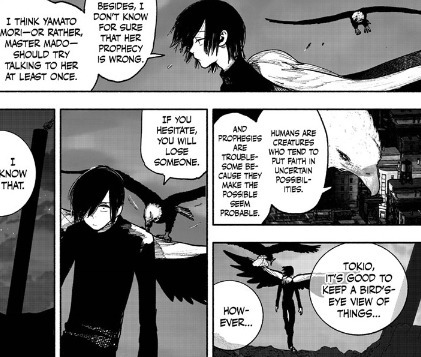
Humans are creatures who tend to put faith in uncertain possibilities, and prophesies are troublesome because they make the possible seem probable.
In other words prophecies provide a false belief of certainty in an otherwise completely random world. Saiou is definitely a victim of this tendency because even his good half so to speak acts completely helpless in the face of the Light instead of fighting back, and it takes Edo's encouragement in order to do so. Edo goes from saying that he wants to hold an umbrella over Saiou's head, to realizing simply standing there in the rain together underneath an umbrella isn't enough, they need to keep walking forward too.
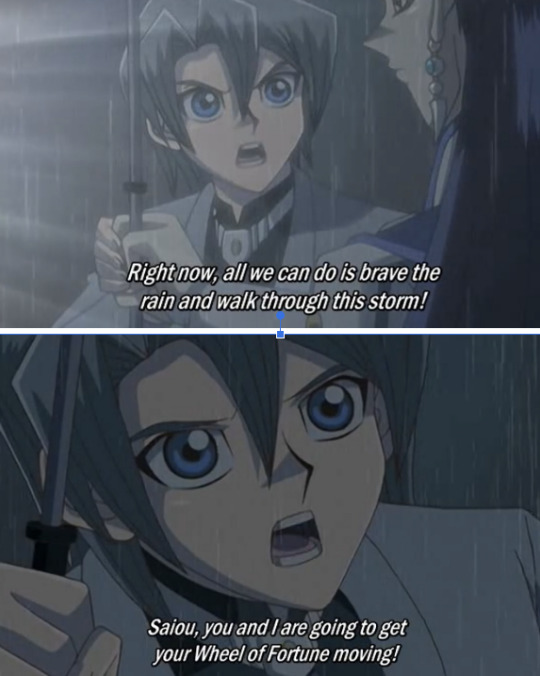
In other words it's Saiou himself who puts on the shackles, and it's Saiou himself with Judai and Edo's help who has to throw them off. When Saiou is liberated from possession he also loses his ability to see the future, the very thing that made him destiny's puppet in the first place.
The World is also referenced by the episode title. It's Saiou's ace Arcana Force card which he uses against Edo, (though his true ace is the Light Ruler which he wins the duel with).
XXI - The World I am Transforming
The world is the last step of the fool's journey. It's the card of self-realization and self-fulfillment. The world is typically depicted a woman standing in the cnter of a wreath, surrounded with four images four astrological signs. The Lion is Leo, the Bull is Taurus, the cherub is Aquarius, and the Eagle is scoprio. These four signs also represent the four elements of aclehym, an fire sign, earth sign, air sign and water sign respectively.
The world represents the final step of the fool's journey, a journey of self-discovery.
"I found this quote about the World and it always strikes me as perfect: "One does not conquer the world, one discovers it."
Kitchen Table Tarot
It also symbolizes the final step of alchemy, which is to create gold, or in a Jungian sense to finish individuation.
What can we say of an understanding, a freedom and rapture beyond words? The unconscious known consciously, the outer-self unified with the forces of life, knowledge that is not knowledge at all but a constant ecstatic dance of being - they are all true and yet not true. The purpose of this card can be described as that of uniting ourslves with all thos things seen in trump 10 as the external vision, that is, fate, the workings of life, the element of existence. When the unity is acheived the symbols vanish, dissolved into a dancing spirit.
Seventy-Eight Degrees of Wisdom: A book of Tarot
The most important aspect of The World in this case is spiritual unity. Yu-Gi-Oh and its various spinoffs is after all, the friendship show about friendship. Though I'd argue that Yu-Gi-Oh surpasses the typical "solve everything with nakama speeches" of the Shonen Genre by showing that showing friendships can be conflict ridden, even trying at times, especially in Season 3 which shows the difficulty of trying to save a friend when they are in a self-destructive spiral. The difference between Yu-Gi-Oh! and other shonen manga is that it's themes of friendship are more solid because these friendships are continually tested and tried.
Friendship in this case also means an alchemical union, alchemy is symbolic of the bonds between people. In order to make a bond stronger it has to be broken and reforged again the same way that alchemy's chemical reactions melt down metals and reforge them as something purer.
The unity aspect of the world shows not only what Edo needs to do to reach Saiou, (The holding out the Umbrella under the rain metaphor) but also it foreshadows the union between Judai and Yubel in season 3. In both cases the solution is a union, and in both cases it's not an easy union because Saiou is in conflict with Edo, and Yubel is in conflict with Judai.

Afterwards Saiou has to reform his sense of self without his powers (something he struggles to do in season 4) and Juadi / Yubel has to reform themselves (once again his entire character arc in Season 4) after all the changes they've endured. The World is a card of transformation and once the transformation is complete there's nothing to do but go out into the world and face it, just like when children are finished growing into adults the final test is for them to leave their parents home and embark on a journey out into the world.
There we go every tarot reference in Yu Gi Oh - oh wait I forgot one. One last Tarot card for the road.
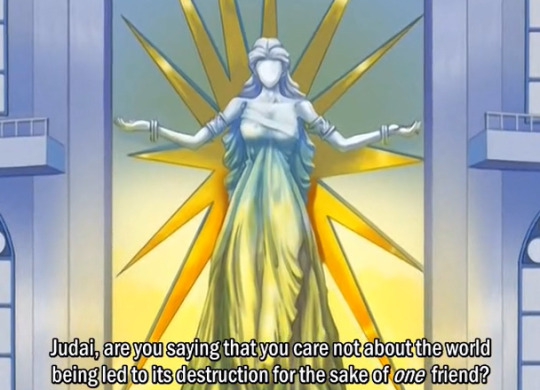
XI - The Justice I am balancing
Judai: I am going to save Ed - and you know that goes for the lives of everyone in the world, too!
Saiou: Oh? Playing superhero are we?
In this conversation Saiou calls out Judai's decision to gamble with the fate of everyone else on earth, by trying to save Edo instead of just throwing the key into the ocean so Saiou can never get access to the satellite. It's a very selfish, and very Judai-like decision.
I'd say that this is again setup for Season 3 which goes more in-depth into Judai's tendency to make decisions like these, only looking at saving the person in front of him instead of the big picture. From a simple utilitarian perspective you should sacrifice Edo to save the rest of the humans on earth, but life is more complex than just the trolley problem.
There are some times when Judai's desire to save one person over the group is a bad thing, such as when his fixation on saving Johan leads to a situation where the rest of his friends get killed because of his self-centered thinking.
There are times when the characters admit they aren't trying to be a hero just save a friend, Jim Crocodile Cook and August O'Brien save Judai not because it's the heroic thing to do but because they want to help their friend - it's something they admit is selfish on their part. A lot of Season 3 is showing that heroes aren't just slaves to justice and right and wrong and they can often make selfish decisions, but also putting one person over the many isn't necessarily a bad thing.
The utilitarian thing to do would be to kill Saiou, to kill supreme king Judai and then later kill Yubel for the sake of the world, but is that really going to be the solution in the friendship anime about friendship? Especially in an anime that borrows so heavily from Jungian themes, in Jung the solution is not to kill your shadow but unite with it.
Invoking the Justice in this Situation basically symbolizes this conflict between saving your friends and saving the world. As I said Yu Gi Oh Gx doesn't really give a definite answer on the "Needs of the Few vs. the Needs of the Many" debate it just portrays it as something complciated.
I always thought that the Justice card was male, but then I did some research and found that it's based on Athena. If you look at the card, there is no water. This is a bit unusual for tarot cards, particularly in the major arcana. No water? No emotion. This card is about being critical and impartial. There is no room for empathy.
Everything in this card is even. The roes are symmetrical, the pillars are parallel, and the sword held straight up balance the scales hanging straight down. She (justice) will start moving as soon as she makes her decision and will carry it out. Justice is about action.
Also don't forget that she's holding a sword. The swords suit is about intellect. If you can imagine that Justice is holding the Ace of Swords, you can get an idea of the pragmatism that lives in this card. When this comes up in a reading you have to take all of your emotions out of the decisions you need to make.
Justice is primarily about two things, it's about removing emotion from the equation, and also about balance. Once again I think this is foreshadowing a later conflict, because for the first two seasons Judai makes all of his decisions with his emotions and that works out for him for the most part, until it doesn't.
Judai deciding to surrender the key to save Edo is a purely emotional decision on his part, he's not really weighing the life of Edo against the world he just wants to save Edo.
Judai's decision making is pretty biased but it's not entirely wrong either, like what's the point of calling yourself a hero if you don't even try to make an effort to save somebody in trouble right in front of you.
He's also following the concept of alchemy, as above, so below. That which is above is like to that which is below, and that which is below is like that which is above.
In other words decisions in the microcosmos (the world of humans) affect decisions in the macrocosmos (the heavens). This alchemical premise that the decisions you make in your everyday life ripples out to affect the world, because everything is connected, is woven into the show itself. Neos literally tells Judai that his duel against Saiou on earth, will also ripple out and effect the cosmos.
Judai's reasoning isn't entirely selfish, why can't he try to take a third option and save both Edo and the World?
Which is I think why we're invoking the justice here, Judai does in fact need to learn to remove his emotions and think pragmatically, he spends basically all of season 3 and 4 doing just that - but too much cold reason is just tipping the scales in the other direction. There's no such thing as a completely objective person, in the end Judai is a human being making a decision.
Jim, and later August's decision to save Judai when he becomes the Supreme King is a selfish one because they're putting Judai above the world, but they're also teenagers, and they admit that they're not being heroes of justice they're just kids who want to save their friend.
So the Justice here indicates the very balanced take on justice and heroism that the show gives us. People can't completely embody justice because they are biased unlike lady justice herself, however you can't compeletely decide things based on your emotions either because that will blind you to the consequences of your actions. Judai's selfish desire to save Johan and play hero in Season 3 hurts his friends because he only thinks of his own feelings, not the bigger picture or the feelings of his friends.
Honestly this whole concept of love vs. justice that GX is trying to balance reminds me of an anecdote I heard in church from my childhood where the priest was ruminating on god and faith and he basically said, that you can't have justice without love, because without love to guide it Justice becomes cold and unfeeling and basically becomes just about punishment.
That seems to me what GX is trying to tell us with Saiou, and then later Supreme King Haou, and Yubel's arcs. That yes all three of them did bad things, things that hurt other people. Justice demands that they be stopped, and that they face some sort of consequences for their actions. However, justice without any sort of love is just punishment.
Maybe Saiou, Judai and Yubel deserve punishment for their actions, they hurt a lot of people, but they themselves were hurt too. Killing them for the greater good is certainly an option, and maybe that is justice but there's no love in the action.
You could say that Yubel deserves to die for the sins they committed, but every soul lost that could have been saved is still a life lost.
Judai could have killed Saiou for the sake of the world, but because he saved Saiou, Edo spends the next two seasons selflessly helping Judai in thanks for Judai deciding to help his friend.
Jim and O'Brien could have killed Supreme King Judai for the greater good, but the decision to save Judai later saves Yubel as well because if Judai had died do you think anyone would have been left to stop Yubel?
Saving Yubel is also a part of Judai's own atonement arc because from Season 4 on, both him and Yubel are able to work together to help bring balance between humans and duel spirits.
Therefore the solution comes in finding the balance between love and justice.
In the friendship anime about friendship, helping your friends is a good thing and abandoning your friends is a bad thing.
In other words, I could have summarized this entire overly long post in one sentence. I wrote way too many words about the Card Games Anime TM but congratulations to all of you who read until the end - here's a cookie!
#Yu-Gi-Oh Gx#yu gi oh gx#yugioh#yugioh gx#judai yuki#saiou takuma#edo phoenix#ed phoenix#yu gi oh gx meta#Yu-Gi-Oh Gx meta#gx meta#jaden yuki#yubel#jun manjoume#asuka tenjoin#chazz princeton#alexis rhodes#the fool's journey#tarot#ygo#ygo gx#ygx meta#ygo meta
16 notes
·
View notes
Text
youtube
New video just went up on the YouTube channel, in which I do a deep-dive into the character of one of my all-time favorite Yu-Gi-Oh characters, and honestly one of the most compelling and tragic villains in Yu-Gi-Oh's rogues' gallery, the one and only Yubel from Yu-Gi-Oh GX!
Reblogs are greatly appreciated!
#super nerd daniel#yugioh#yu-gi-oh#yugioh gx#yu-gi-oh gx#yubel#youtube#youtuber#youtubers#video#video post#character analysis#character breakdown#Youtube
23 notes
·
View notes